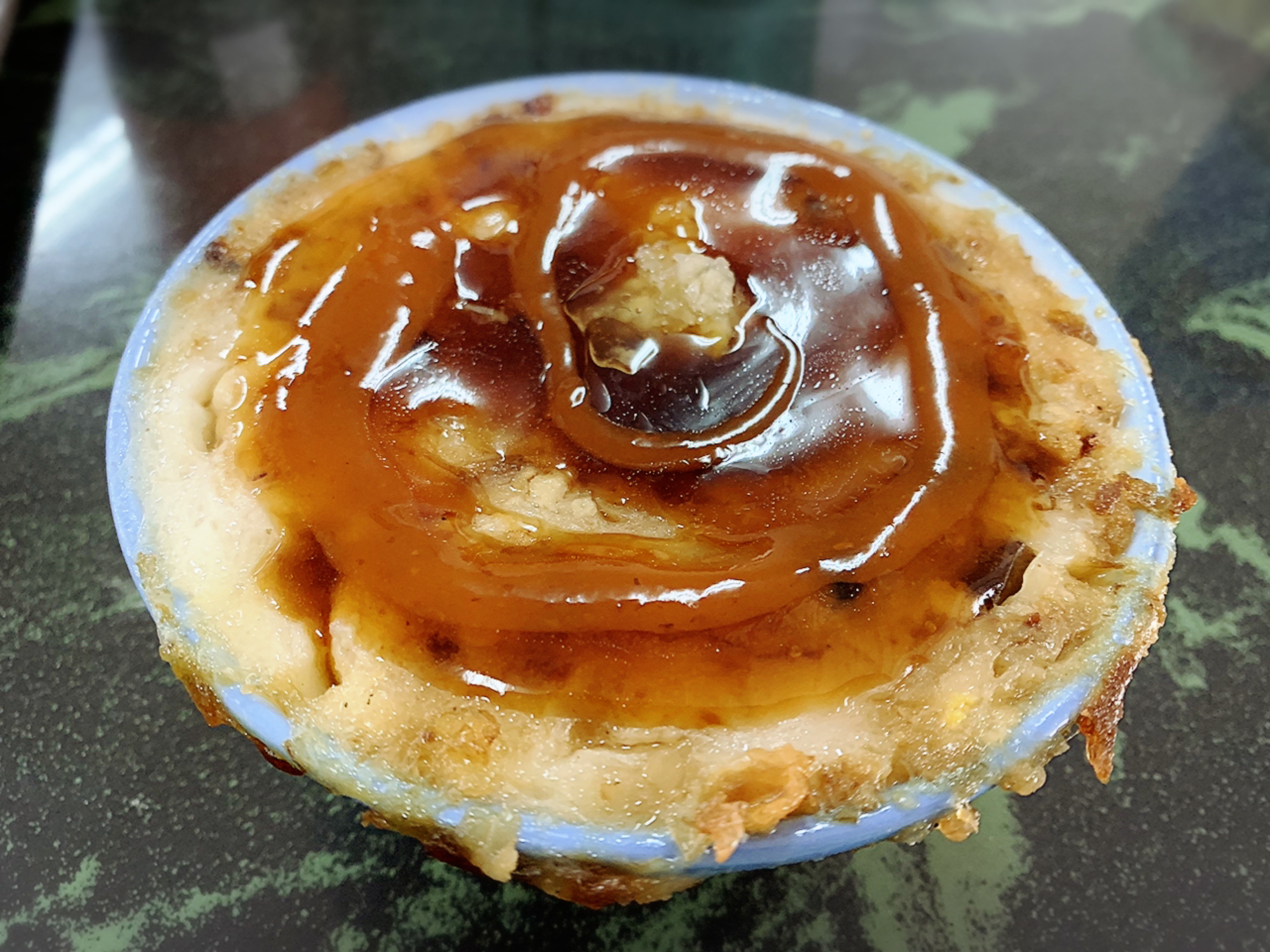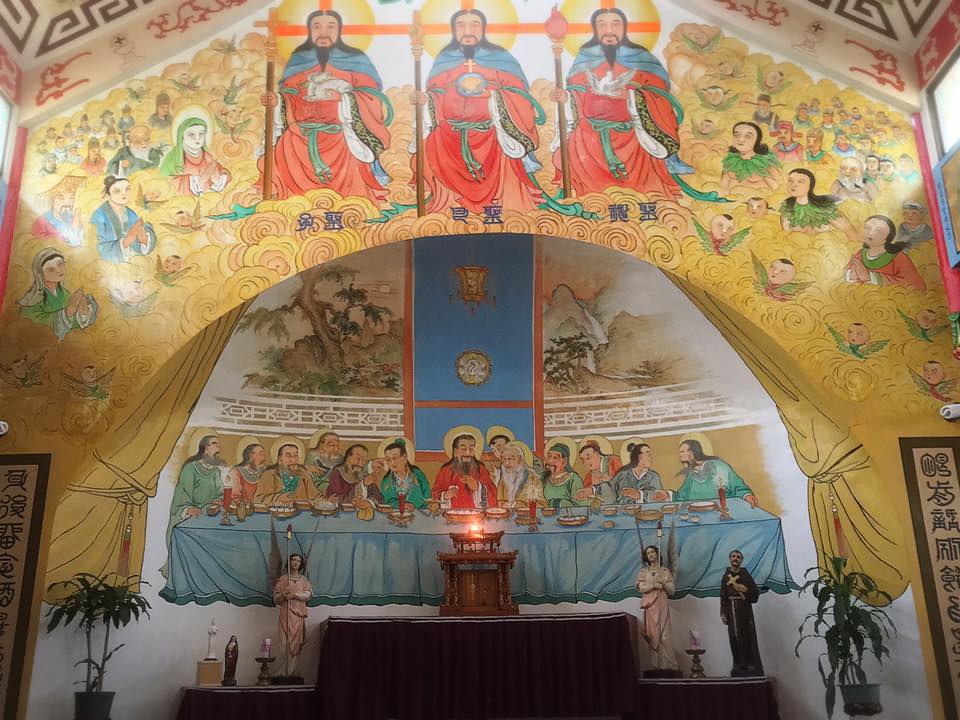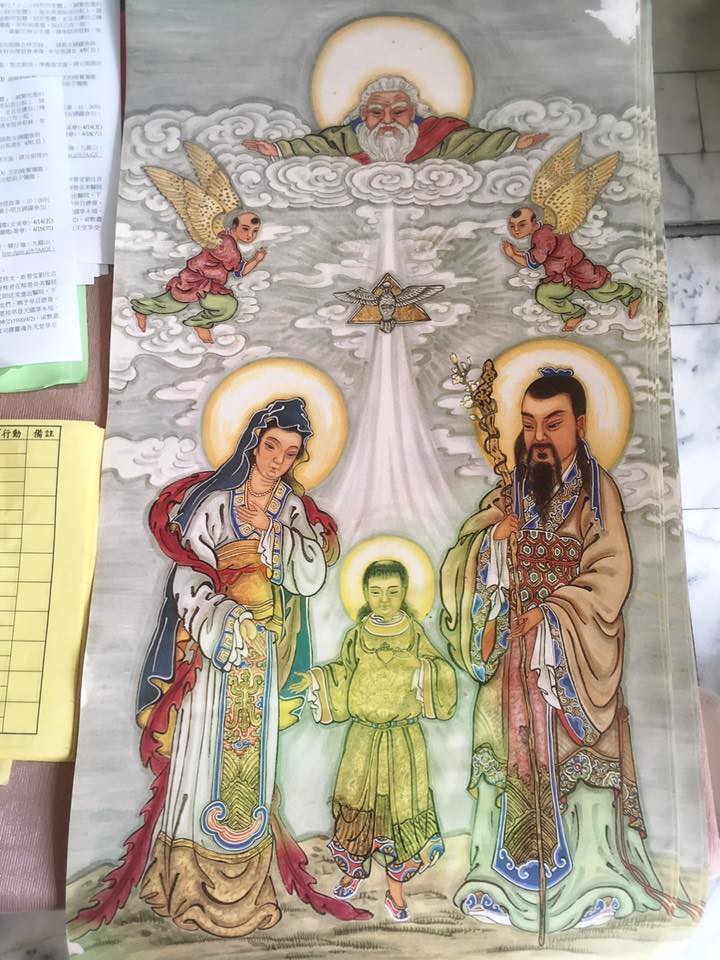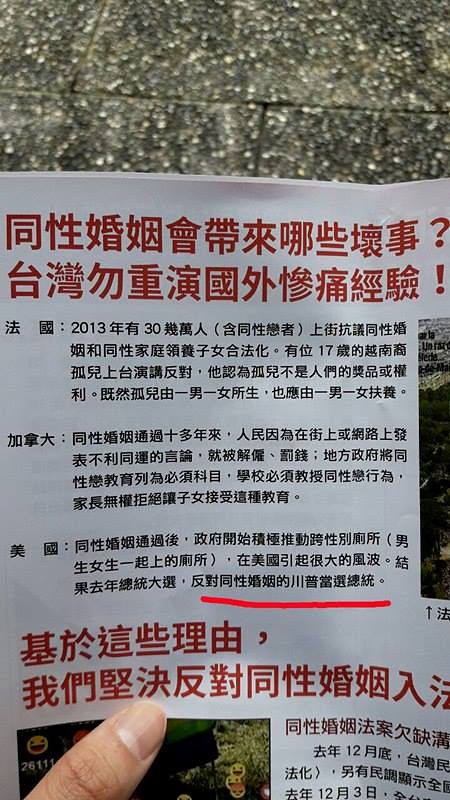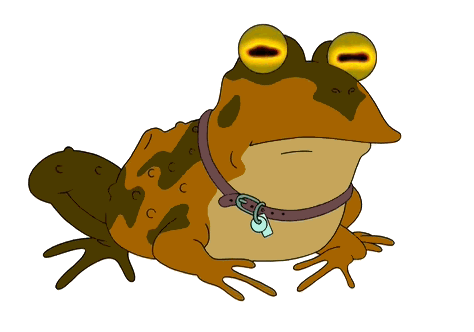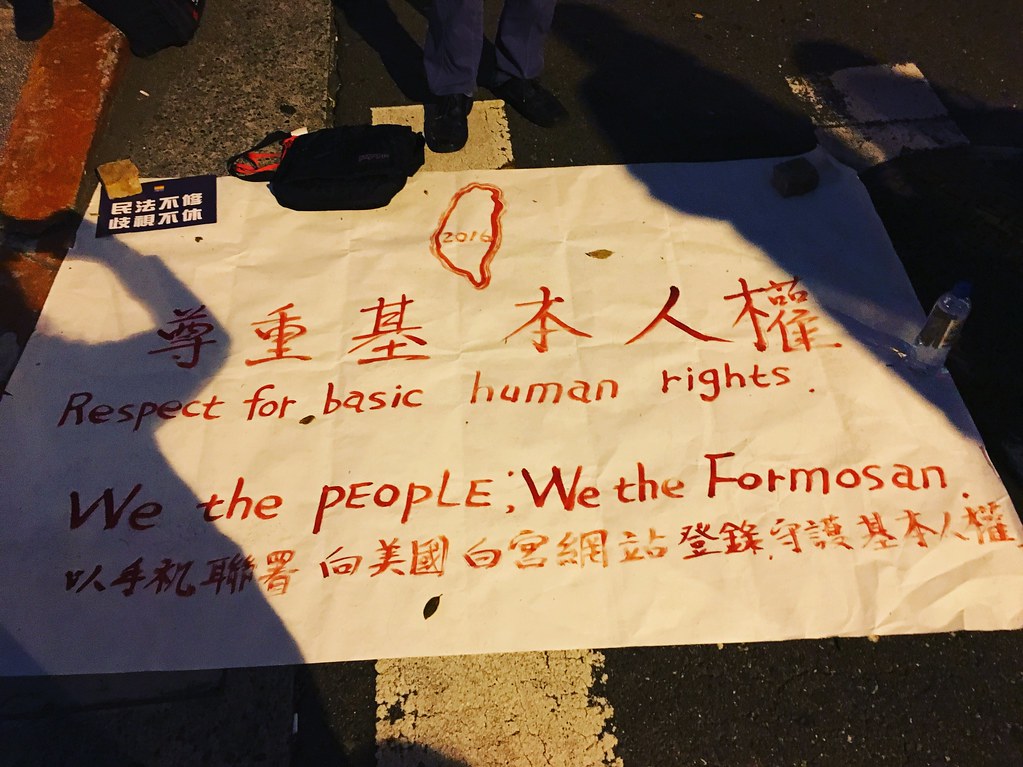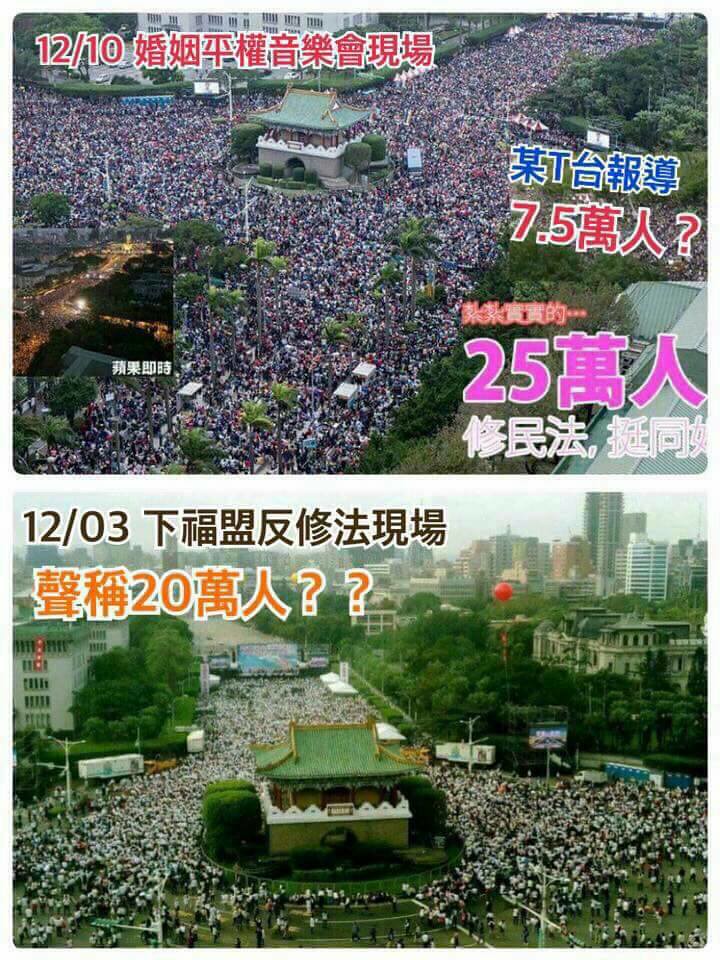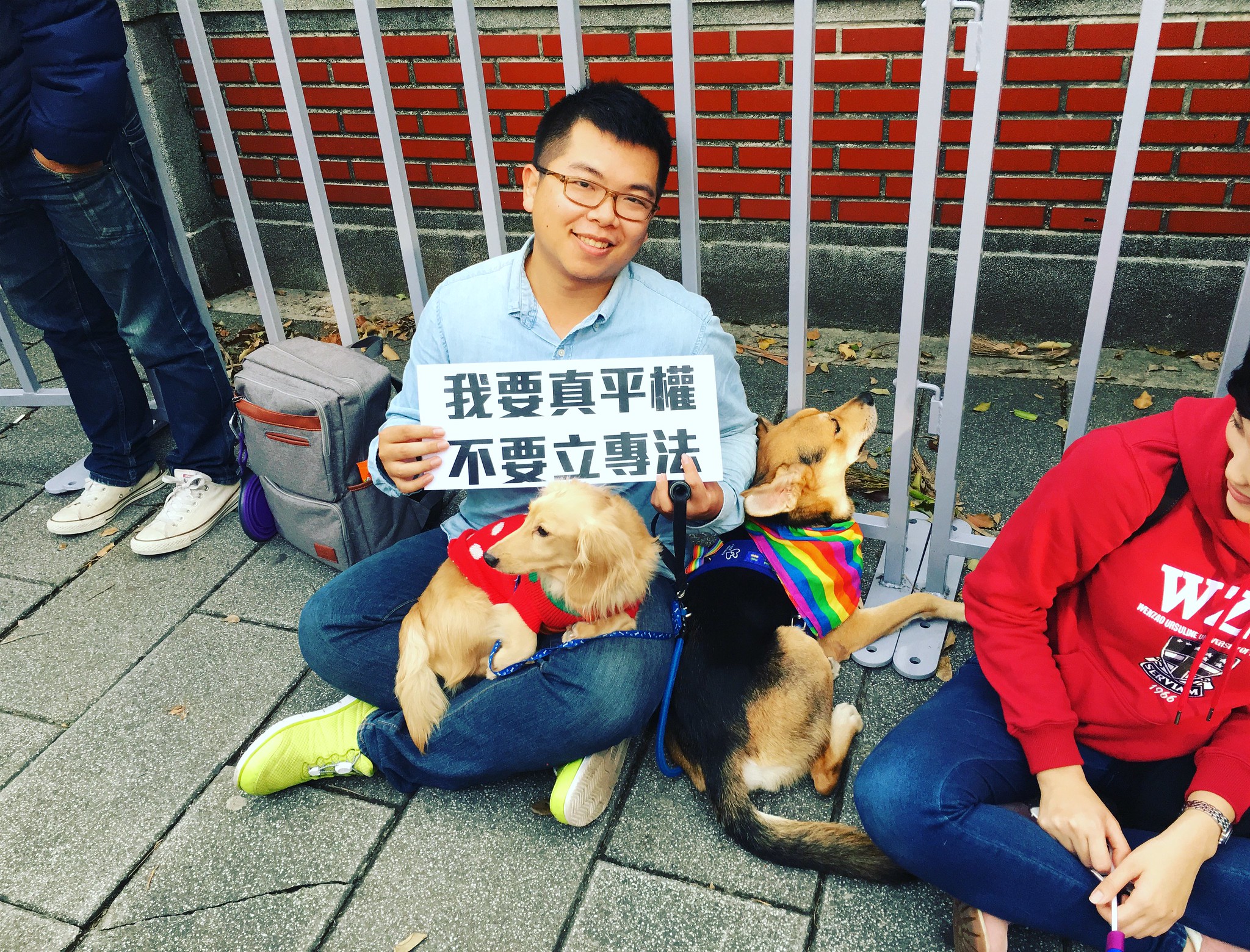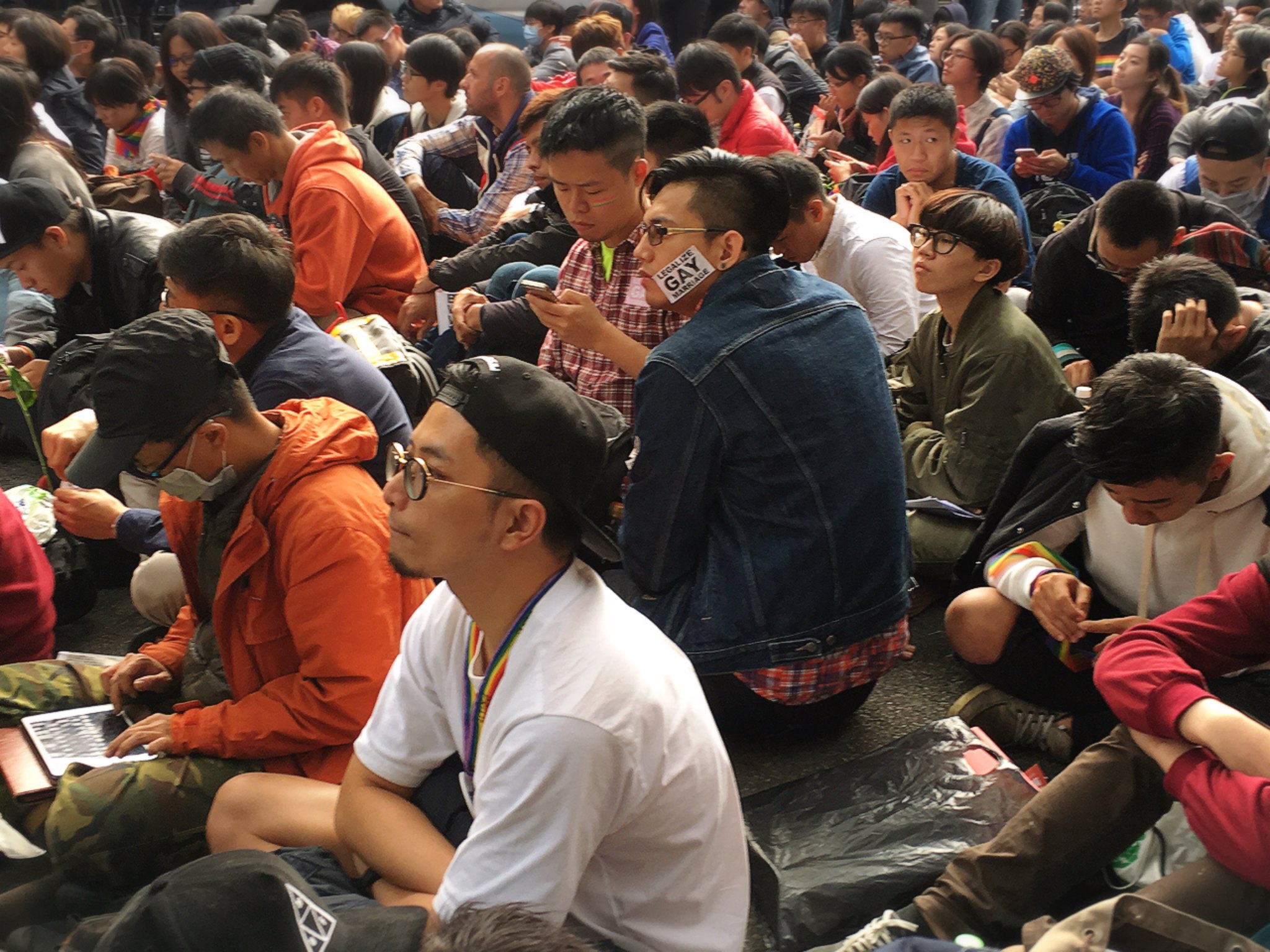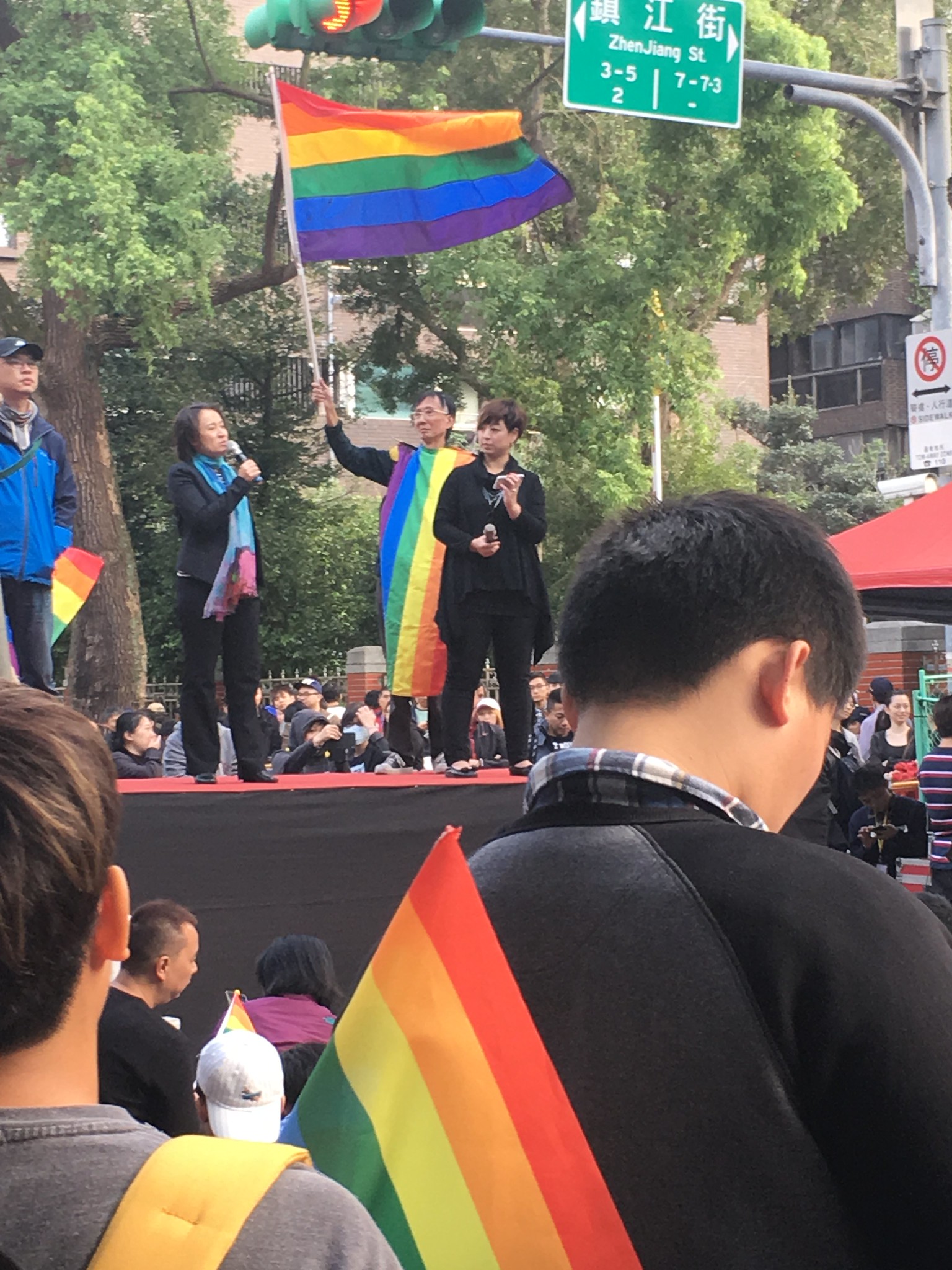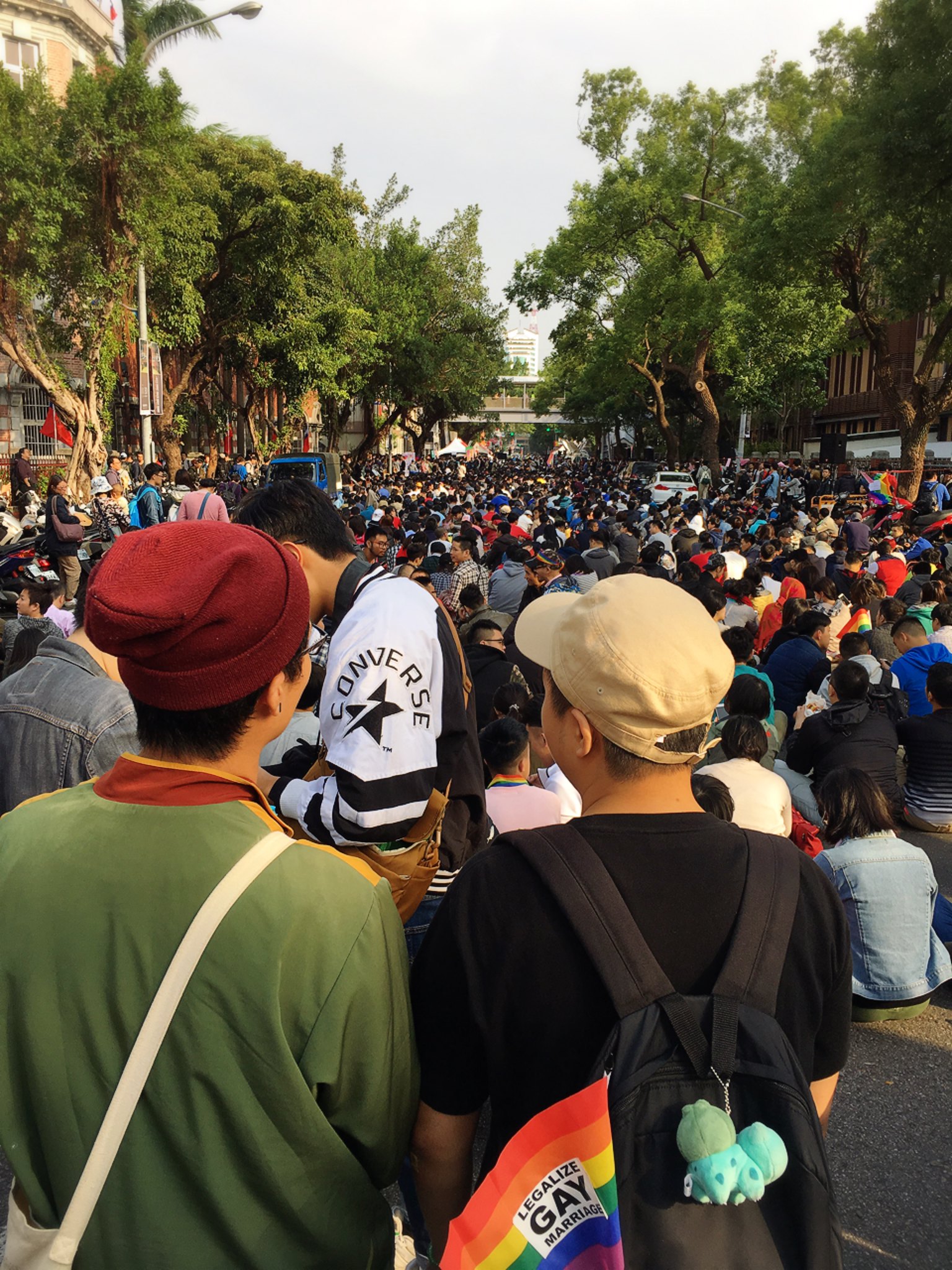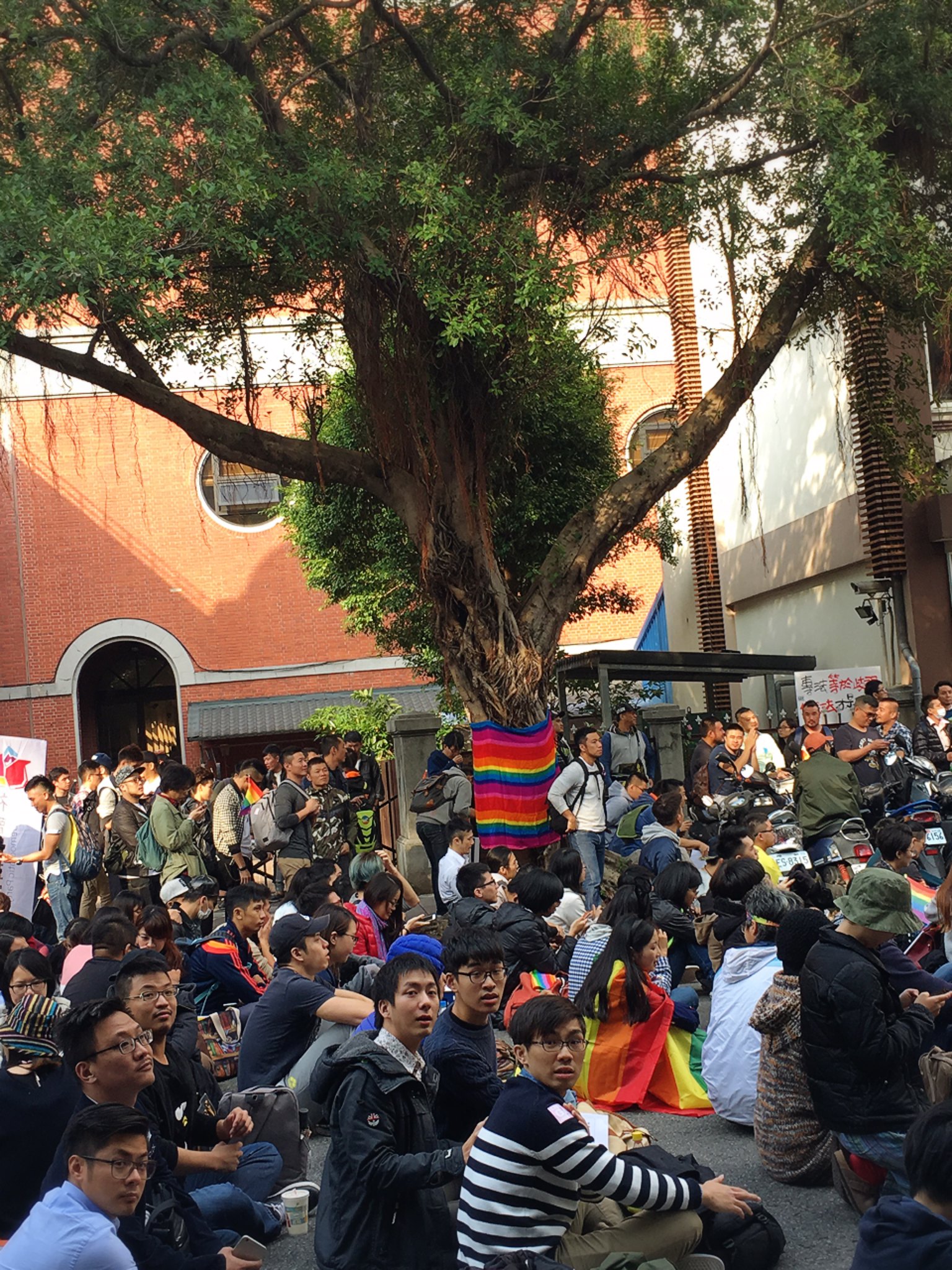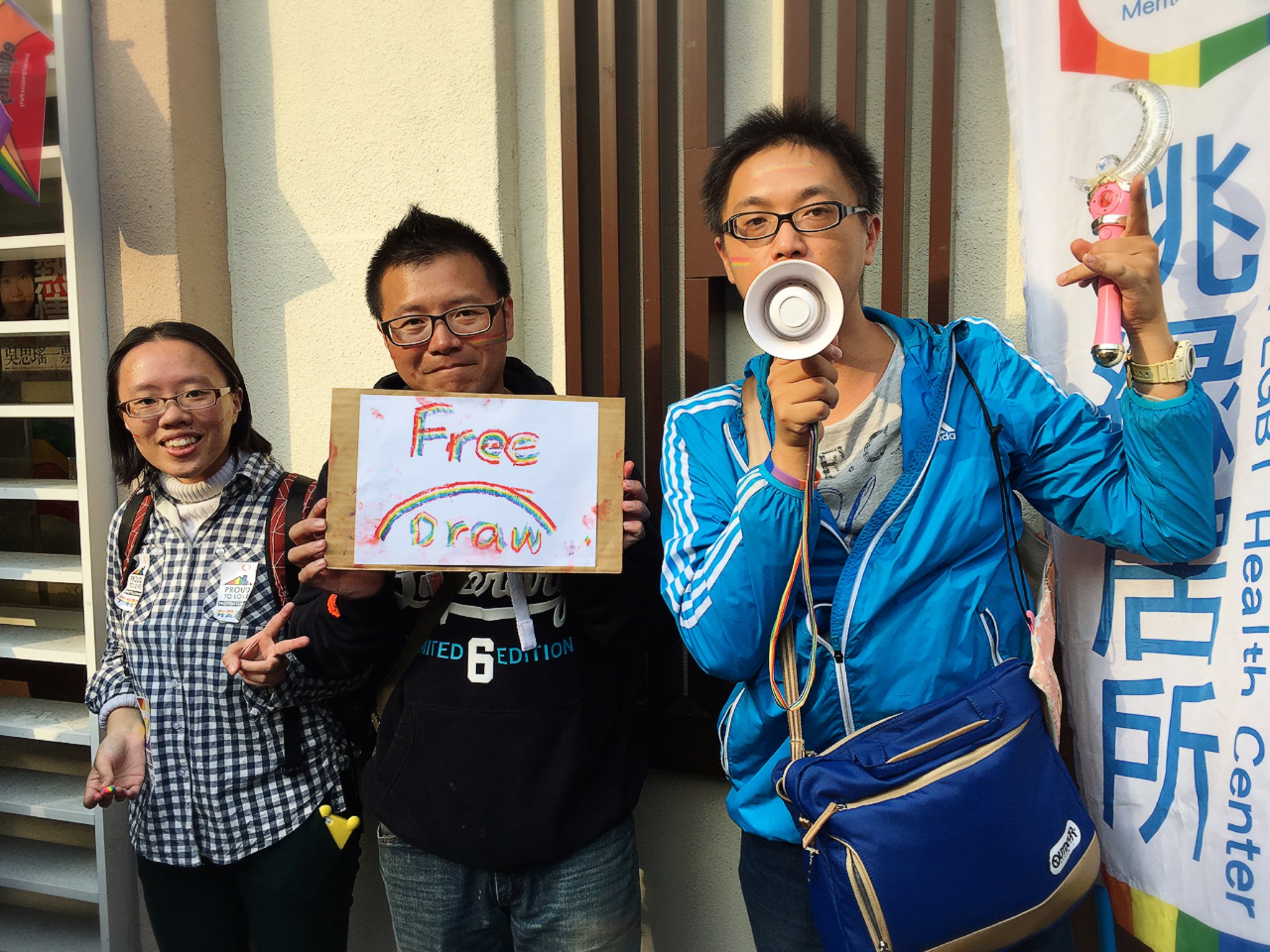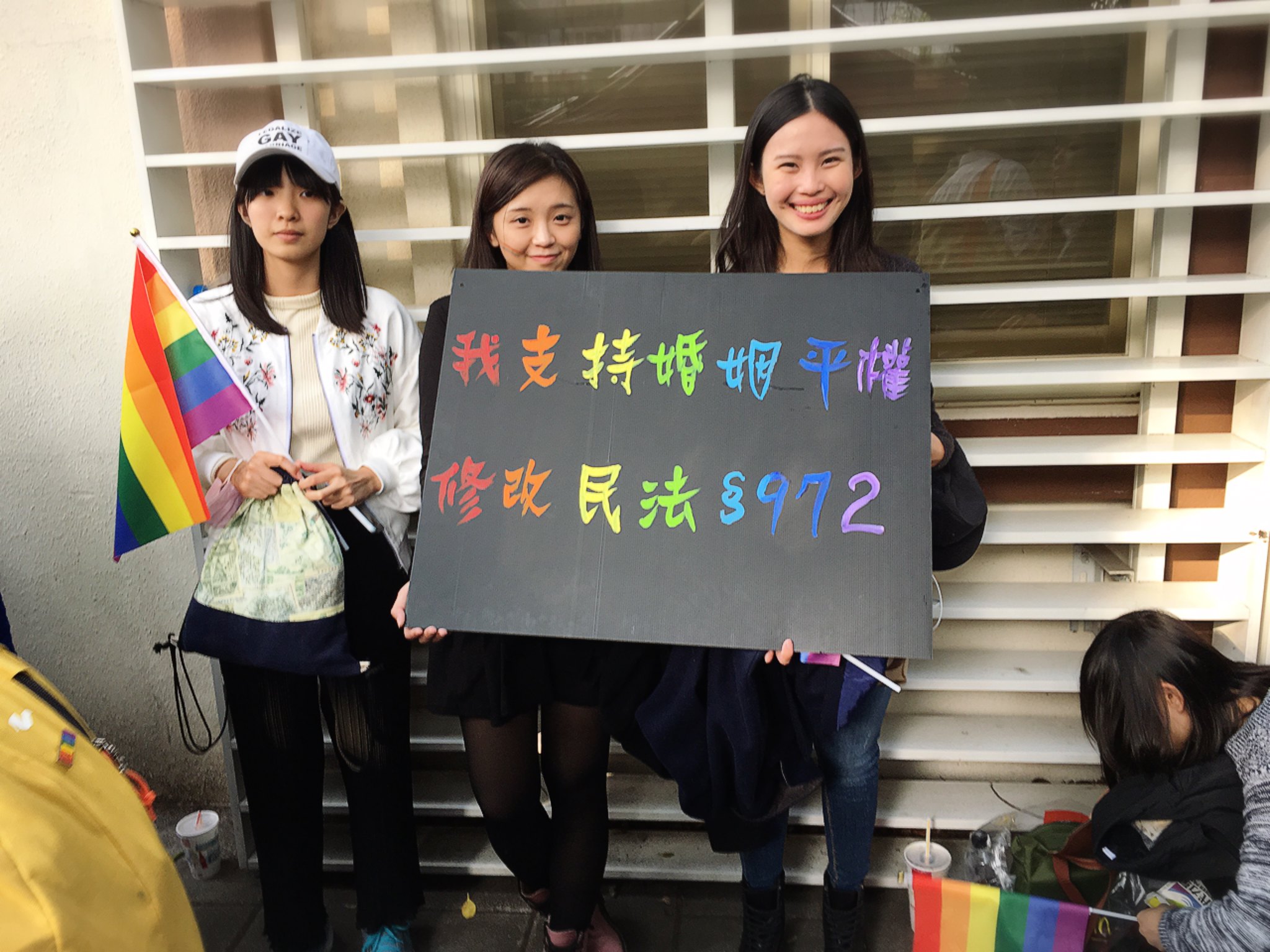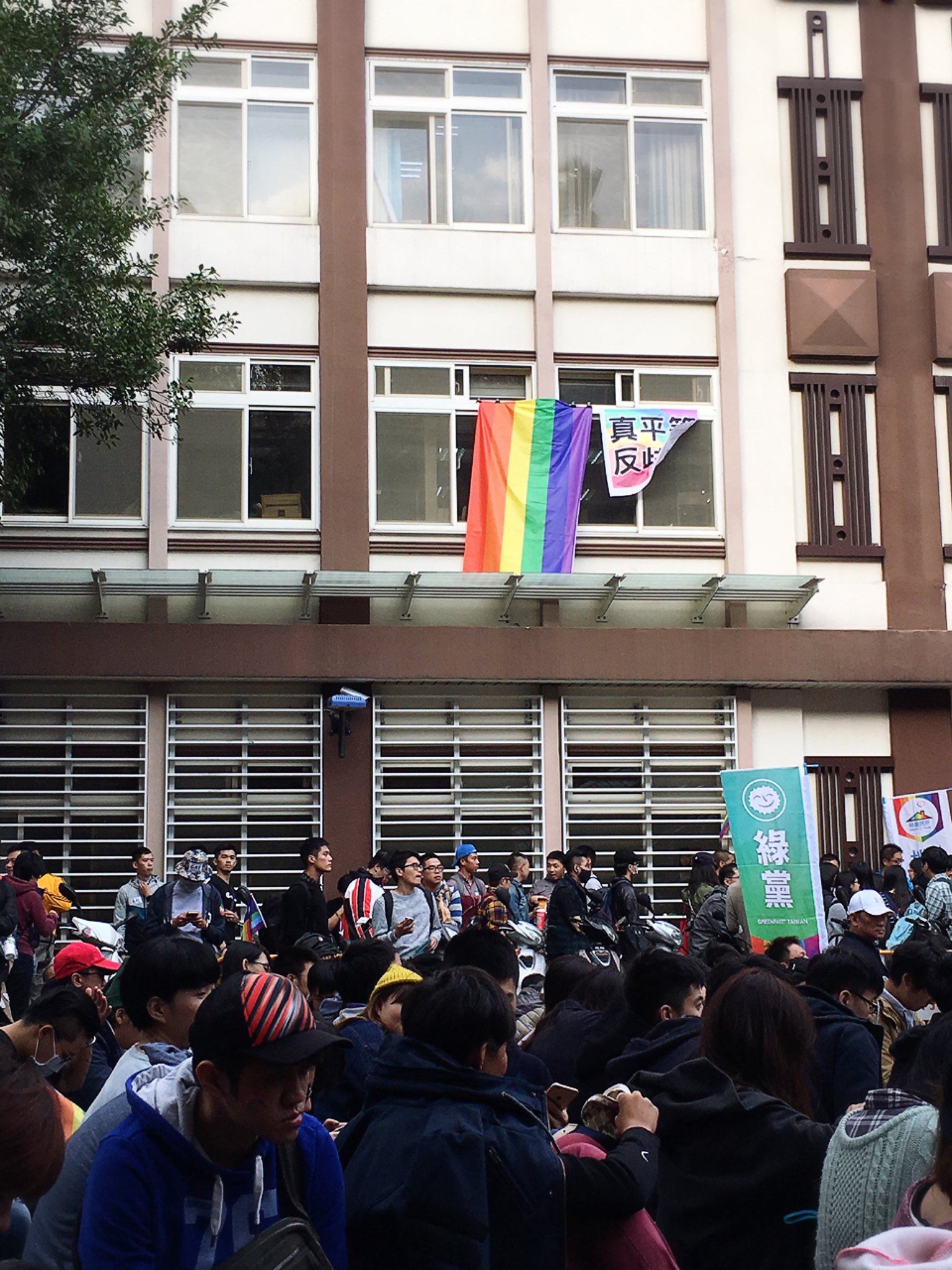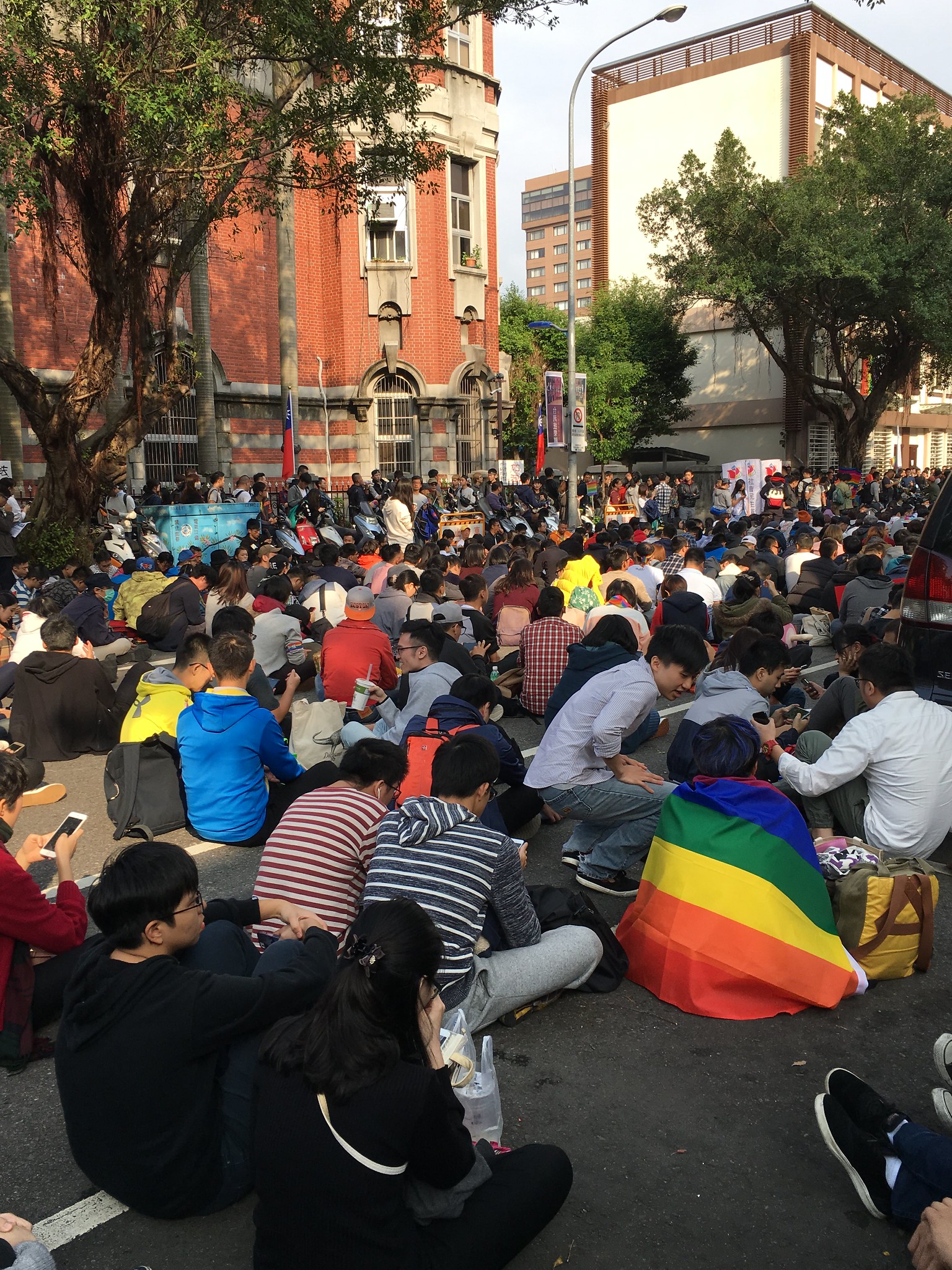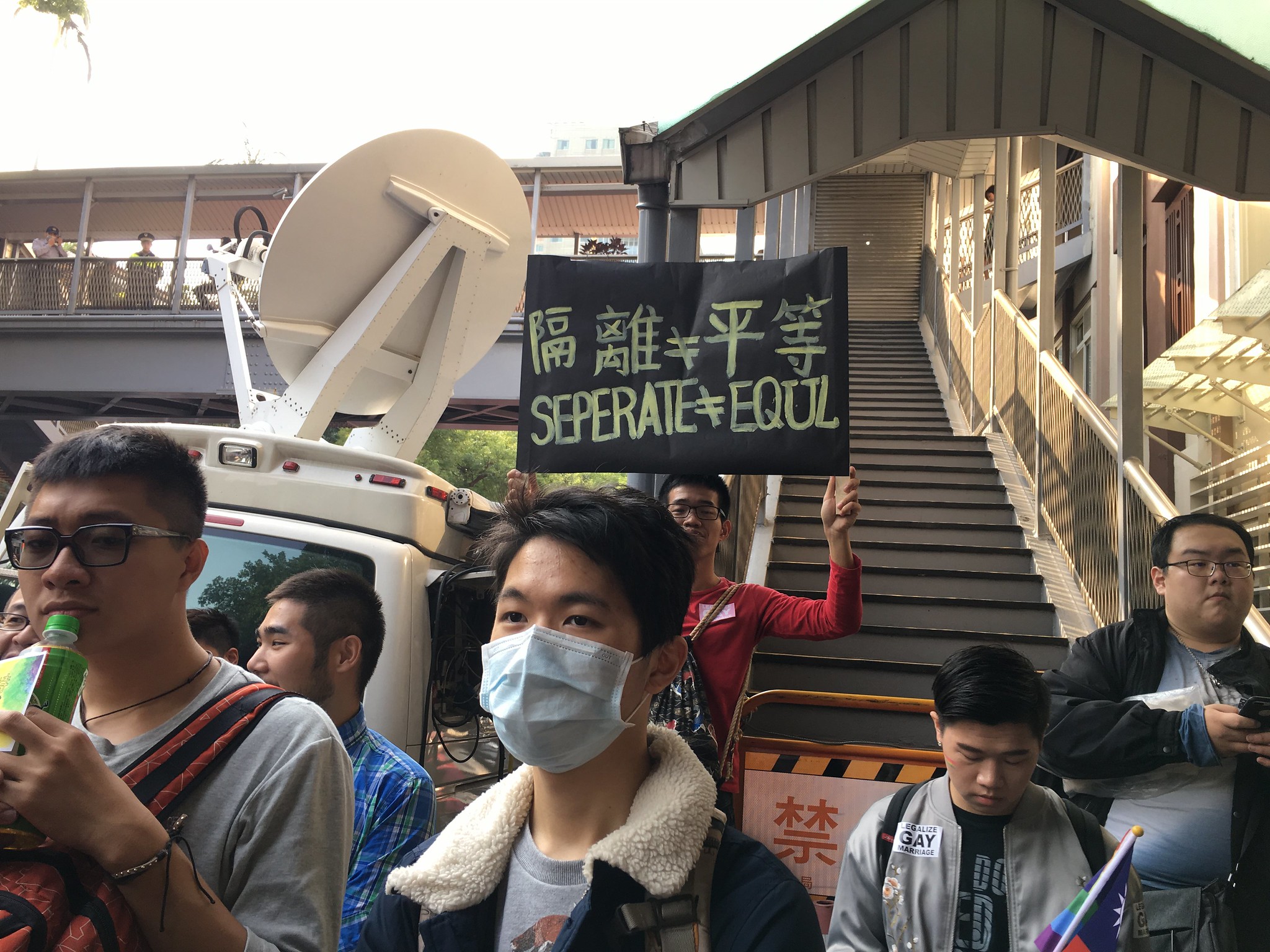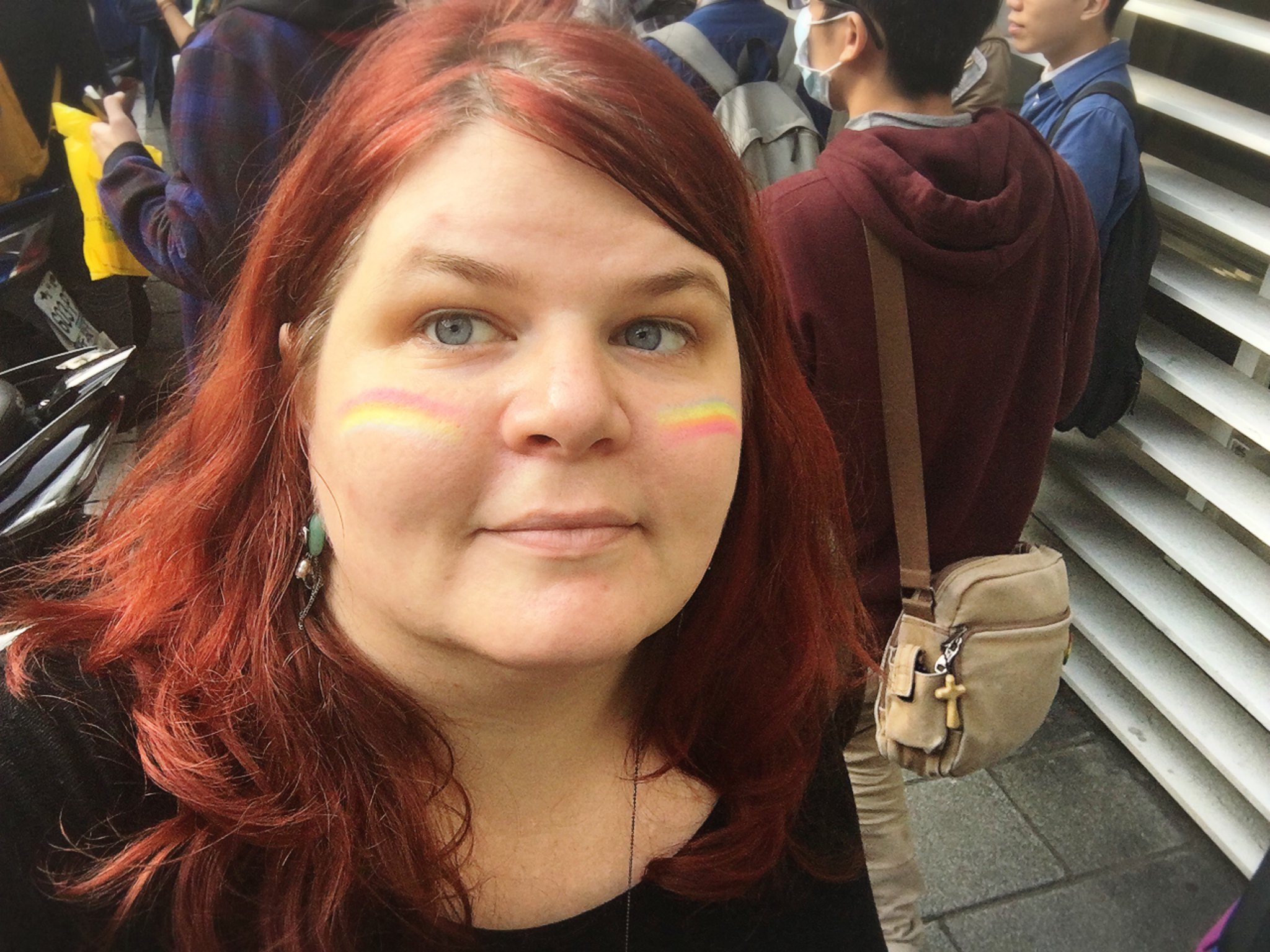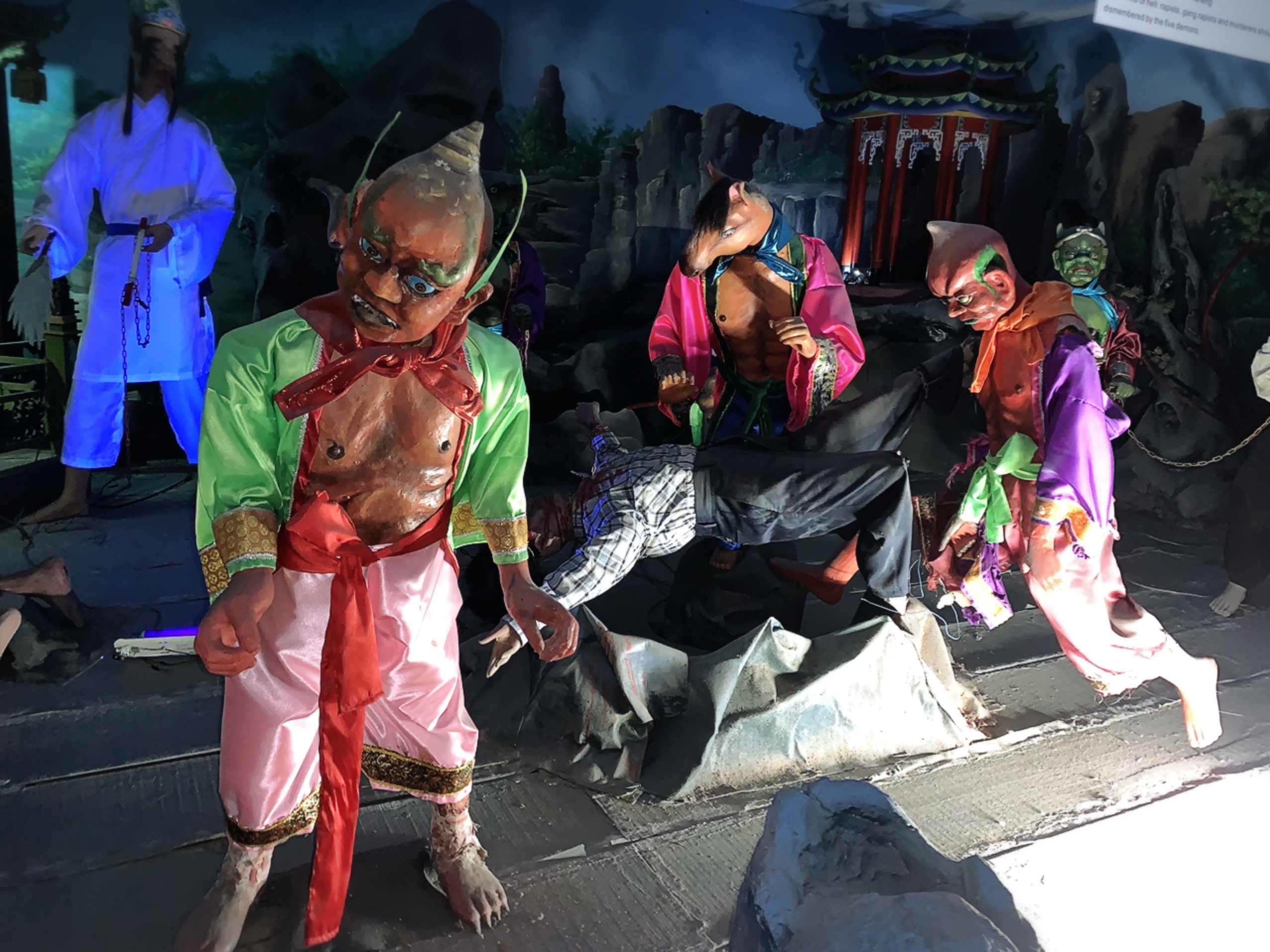
You know which Hell is more fun than Christian Hell (which, let's be honest, was interesting when Dante covered it but otherwise just ain't all that)?
Taoist Hell!
Last week we went to Tainan to get some much-needed relaxation. I'd heard about a temple in Madou (麻豆) out in Tainan County that features a regular temple, a giant dragon, a fun sculpture garden, and an animatronic Heaven and Hell, which I suppose can be called family-friendly because parents do take their kids. The animatronic sets, fake blood, recorded screams etc. aren't that scary (to me), but there are repeated references to rape, murder and trafficking (that said, most of that part is in writing, which little kids typically can't read yet).
I wasn't quite sure how to get out there - there are buses from Tainan City, but though it's a half-hour drive, most take an hour or longer. The express buses only depart a few times a day. Even then, they go a bus depot on the edge of town, and of course the temple with animatronic Hell - 麻豆代天府 - is not only on the other side of town, but somewhat outside its compact downtown area. There are buses that stop within a 15-minute walk, but waiting for one stretches the trip into a 3-hour ordeal each way. There's a taxi rank at the bus station, but no clear way to get back unless you can get that same driver to agree to pick you up at a later time.
In any case, Madou is an interesting enough town that it's worth spending a little more time (half a day is about right), which is hard to do without private transport.
Lucky for us, one of our closest and oldest friends in Taiwan also lives down south (though not in Tainan) and was so excited to hear we were coming to her part of the country that she took off what is usually a work day running the family business, borrowed her dad's car and was quite happy to plan for our time together to include a trip out to Madou, as she hadn't been to anything like animatronic Hell since childhood.
Madou has been settled for a very long time - originally called Matau, it was one of the largest indigenous Siraya settlements in that part of Taiwan during Dutch rule, and the most 'troublesome' to the Dutch (though I find it likely that the Dutch were just as troublesome to them, if not more so, seeing as the Siraya got there first...by a good few thousand years). It continued to exist through the Japanese era and as such has a small collection of interesting architecture from that time, including the old sugar refinery and a big old theater (電姬戲院), now in ruins. The main street still has a few pretty Art Deco buildings at various intersections - though a few are obscured by ugly commercial signs - and a couple of old shophouses that have not been restored.
Madou is also famous for savory rice pudding (wan-gui or 碗粿 - I don't know the exact tones in Taiwanese), so that was our first stop. We went to the famous 碗粿王, but there are a million options and all of them are probably great.
Then, straight to Hell - all 18 layers of it.
Daitian temple is interesting enough as a temple, though the main complex, built in the 1950s, is quite typical for Taiwan. The domed building off to the side is dedicated to Guanyin and is similarly nice, though not particularly unique.

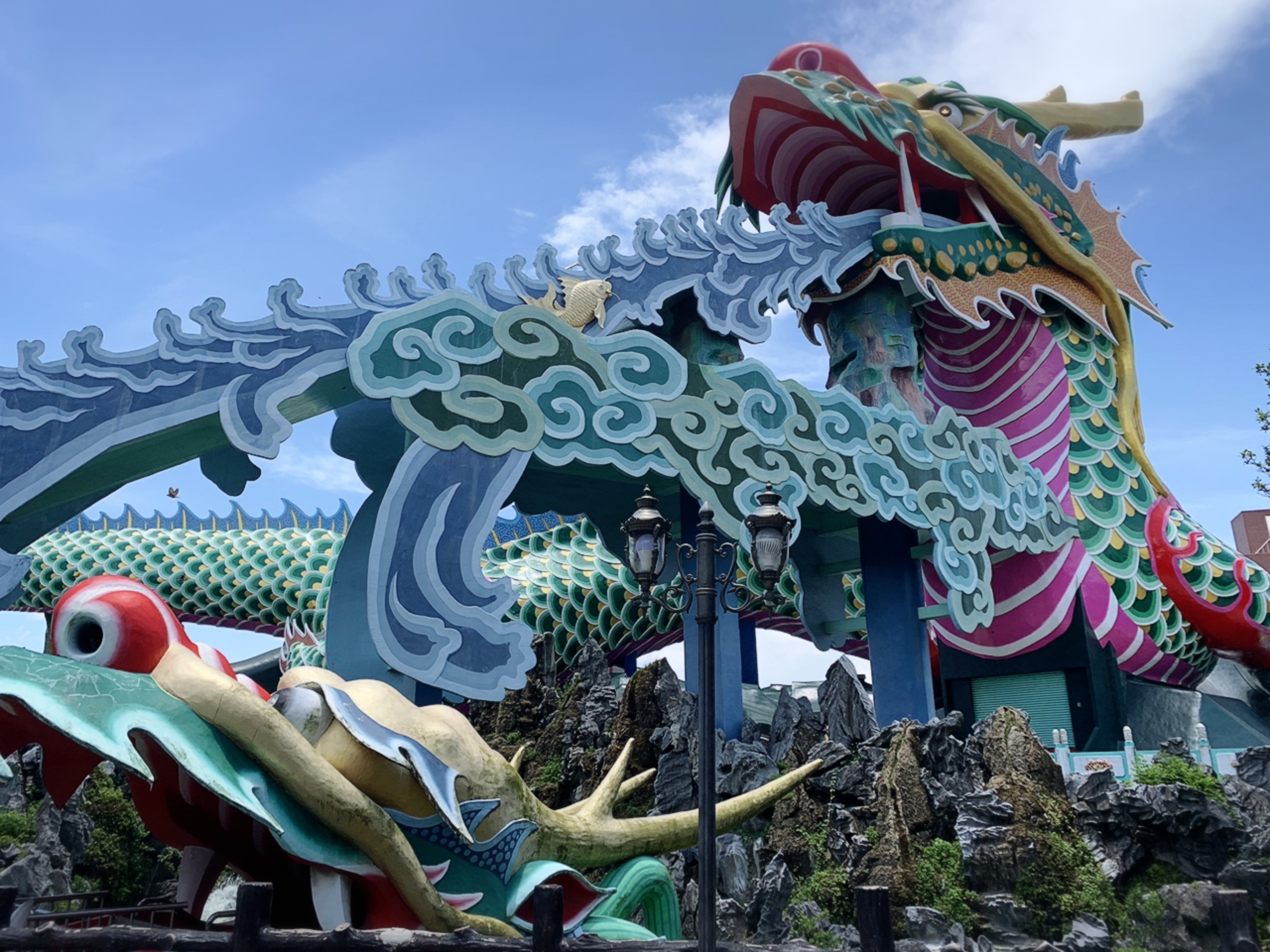
If you're wondering whether you get to go up inside that dragon - worry not. You do! That comes later, though.
The entrance to Hell is to the right of the temple proper, past a man-made creek decorated with plants and sculptures. It costs NT40 to enter and is presided over by a bluish demon with red LED eyes. Though there isn't much of a descent, it feels like you're heading down to a basement as the interior quickly grows dark.

Once inside, you start your animatronic journey with the first court, where the recently deceased are judged for how they lived and sentenced to the appropriate level accordingly. After that, you twist and turn through the next 17 layers, each in its own LED-colored alcove which lights up at regular intervals (so if you arrive in the middle of a display, just hang around for a few minutes after it ends. It'll start up again.) Scary music - which isn't that scary - plays over the loudspeaker as the sets light up, and each one begins with the god who presides over that layer of Hell reading out the crimes of the person sent there, and what will happen to them, all in Taiwanese. I don't actually understand Taiwanese and the recordings are not particularly clear, but it's not hard to guess what's going on. What, did you expect that it would be in Mandarin, in this part of Taiwan? Haha, fool. Anyway, there are also placards above each set that explain in Mandarin and English what's going on.
Some of these are videos - what kind of blogger would I be if I didn't offer up videos of Animatronic Hell?
If they won't play, let me know.
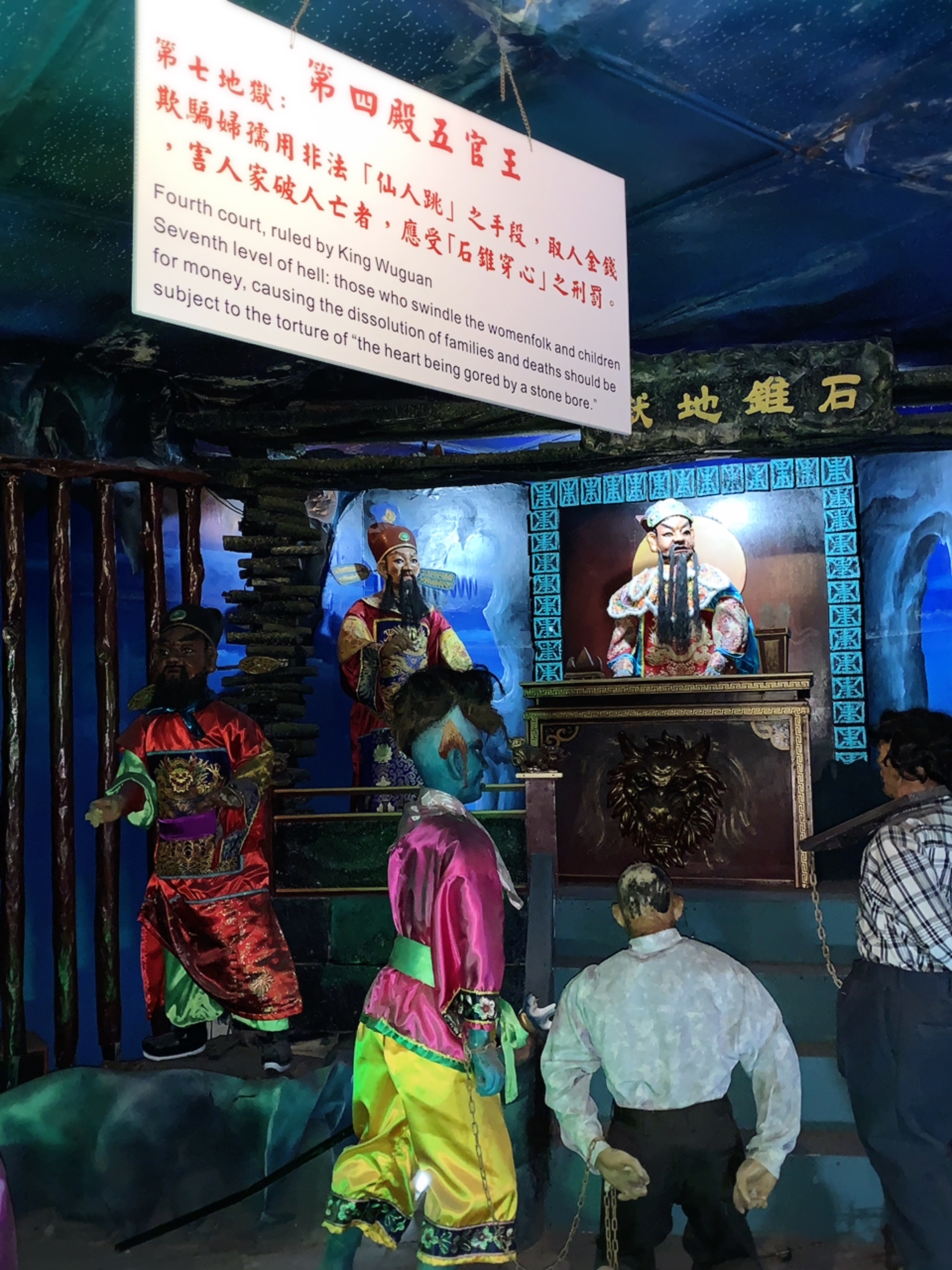 |
| For example, don't swindle the womenfolk. I don't know why that's a specific sin apart from swindling menfolk, but ok |
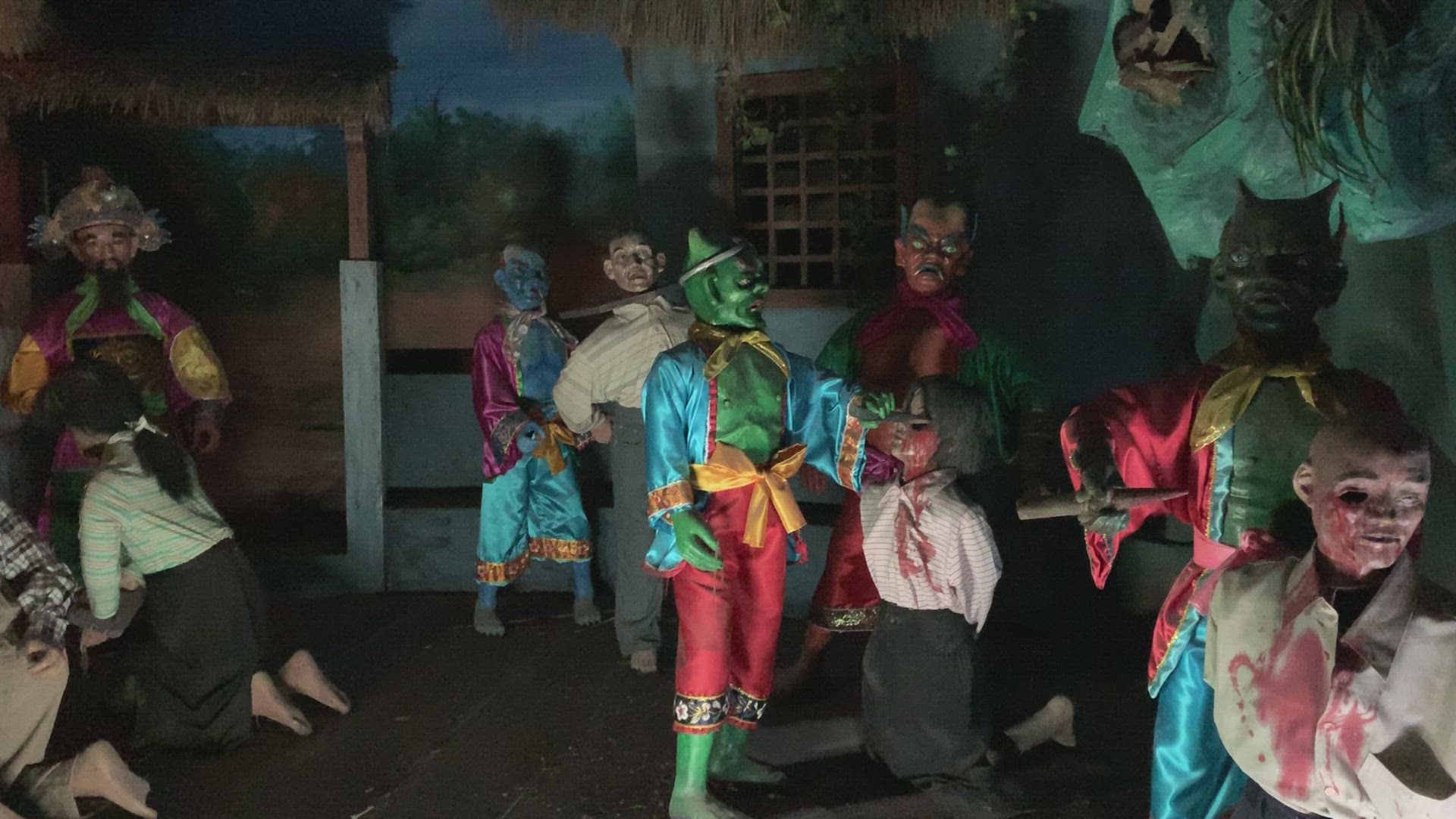
Some of the layers made sense - murderers, rapists, con-artists etc. - whereas there was at least one which punished those who sought profit for themselves, or to enrich themselves. Which to me sounds like...almost everybody? Maybe that's the point - almost nobody goes straight to Heaven because we're all fundamentally selfish. That's not so different from Christianity, after all - harder for a camel to pass through the eye of a needle than for a rich man to go to Heaven and all that.
A few others were specific to the Asian cultural sphere: levels of Hell for not being filial (or filial enough), for women who didn't listen to their husbands' parents directives and more.
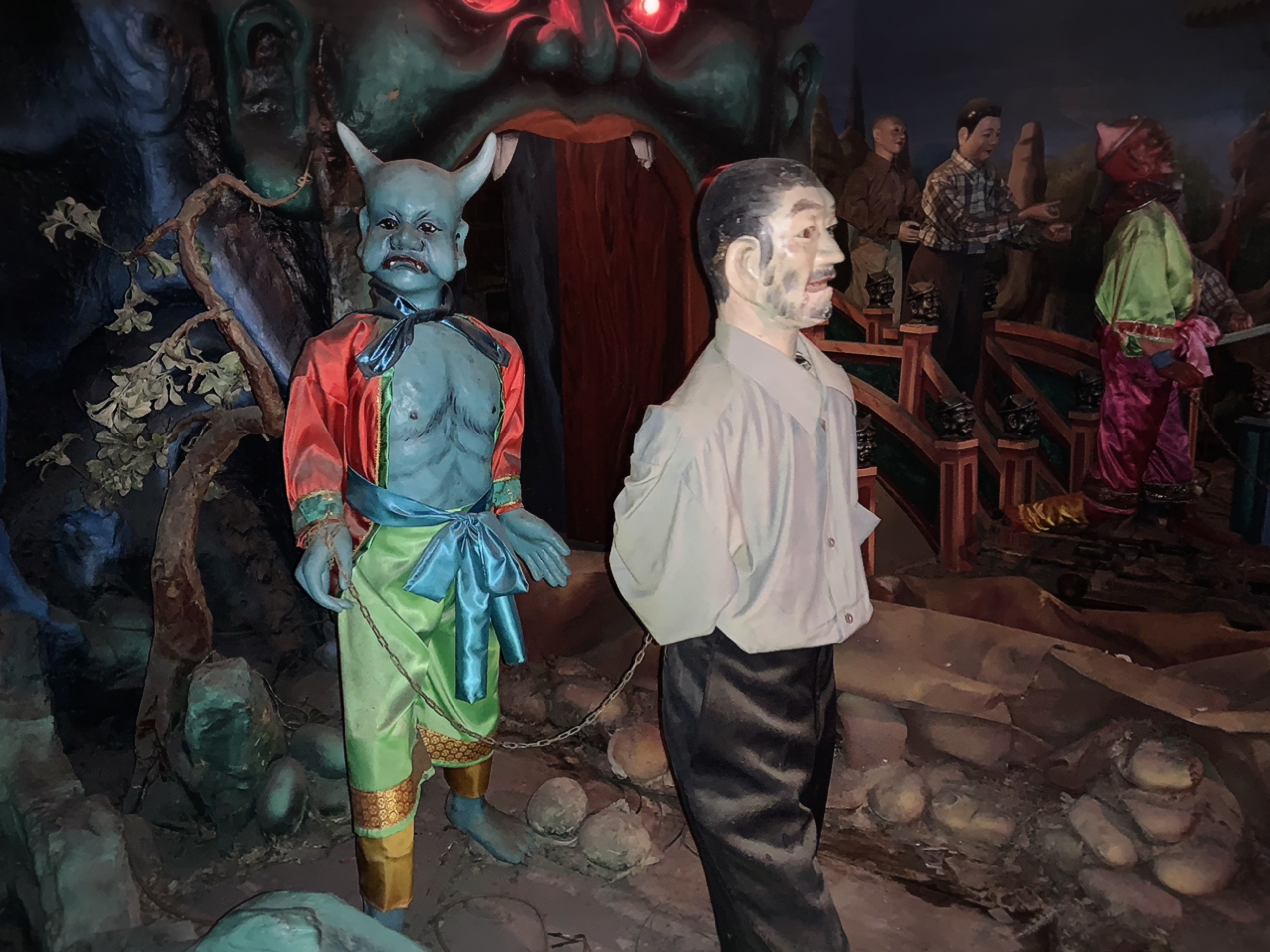
I have to admit, I had a fantastic time. I turned to my friend and the other friend she'd brought along and asked why on Earth nobody had told me about this place before. It's great, I said. You know I'd love something like this!
"Because this kind of place was really scary to us when we were kids," my friend replied.
"Do you still think it's scary?"
"Not really," she said. "But...now I think I'd better listen to my parents more!"

Partway through our tour, we were walking alongside a family with an older and younger daughter, perhaps around ages 9 and 4, respectively. When my friend convinced this would have scared her as a child, I asked the older girl if she was afraid.
"Not really," she said.
"Kids these days are really different. This was definitely terrifying when I was young."
Then I asked the younger sister. She just looked at me and then quickly away. I joked that she was more afraid of a foreigner than all this Hell stuff (which seemed pretty true). Her parents laughed but said, in fact, the little one was scared, but probably wouldn't tell me, because she was in fact afraid of me too.
Later on we passed some teenage boys going through. They were laughing, joking and imitating the animatronic figures. In other words, acting like teenagers anywhere. Ever seen teens in a haunted house around Halloween in the US? Though they'd be more likely to bring their girlfriends and make out. Come to think of it, I'm sure that happens here, too. Plus, open containers are legal, the drinking age is 18 but nobody really cares, and beer is common at temple festivals. I can't imagine some teens have not passed through with Taiwan Beers in hand having a grand ol' time.
The main difference being, the people working at Madou Daitianfu probably didn't care much how teens acted in their animatronic Hell meant to scare kids into behaving, and while we didn't bring beer I got the general impression that it would have been fine if we had. Whereas you can bet some church lady or Aunt Doris in a religious theme park in the US would get all pearl-clutchy about it. Also, no beer.
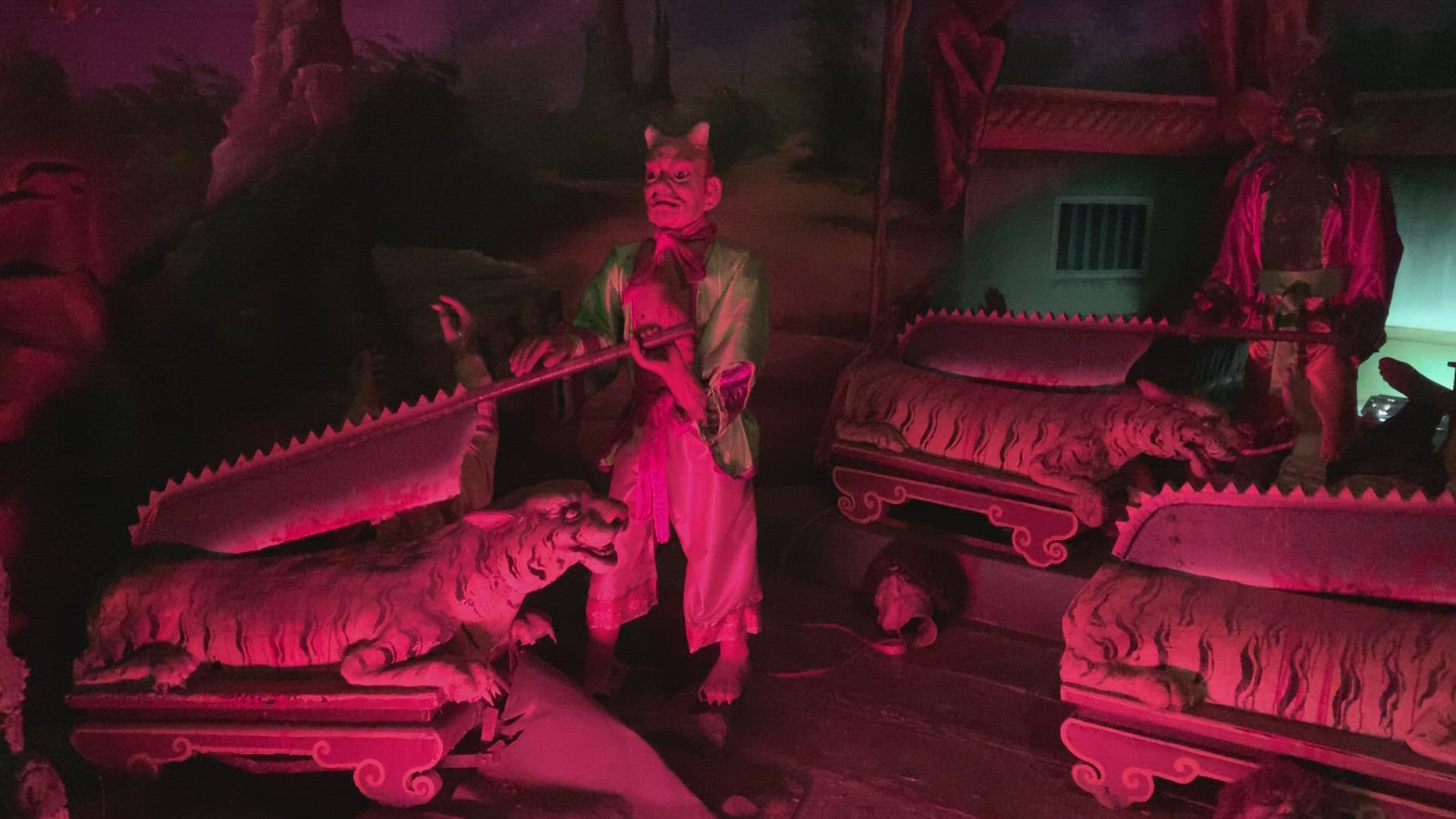
I had thought when I came out here that there are so many religious crazies in the US, that there must be a Christian Hell-themed exhibit somewhere in the US meant to scare children into behaving, and that it wouldn't be that different in tenor or content (though quite different aesthetics) than this Hell. But the closest thing I can find is the Biblical experience park in Florida which includes a bloody crucifixion. Cool, but not the same as Hell.




 |
| Just great for kids. I read this and I think, definitely a place to bring your toddler. |
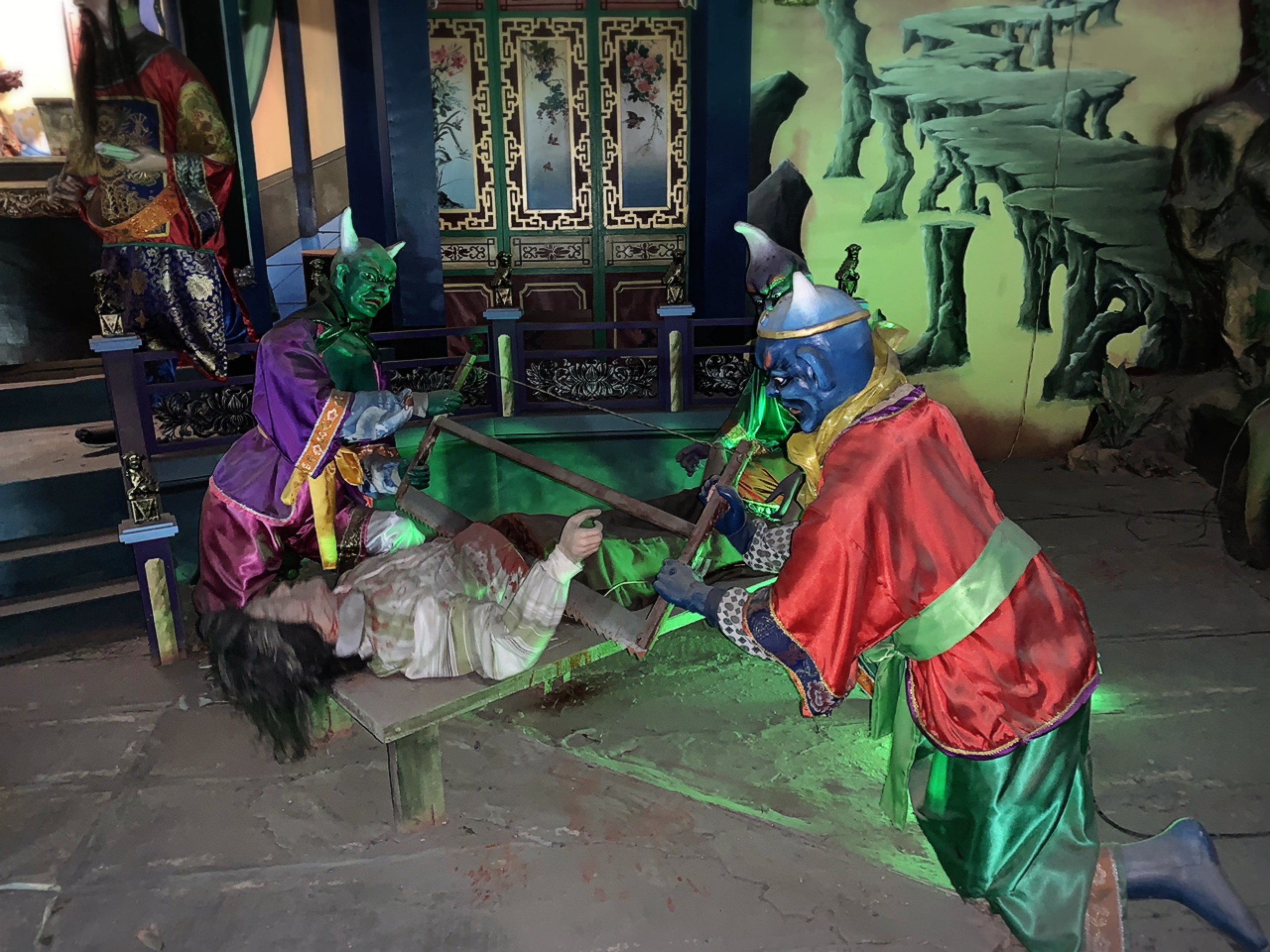




So, you're probably wondering - which level of Hell was my favorite?
(Well, you're probably not wondering, but I'm going to tell you anyway.)
Definitely the 14th level, where "those who look for vulnerable women and take advantage of them" get their "faces skinned by metal blades and disfigured". You see, during this whole Hellacious journey, I was asking myself - sure, but where do the Chads go? You know, the scrubs? The fuckboys? What happens to those guys, because no way they're going to Heaven?
And I suppose this is it. So, gentlefolk, I present to you...fuckboy Hell:
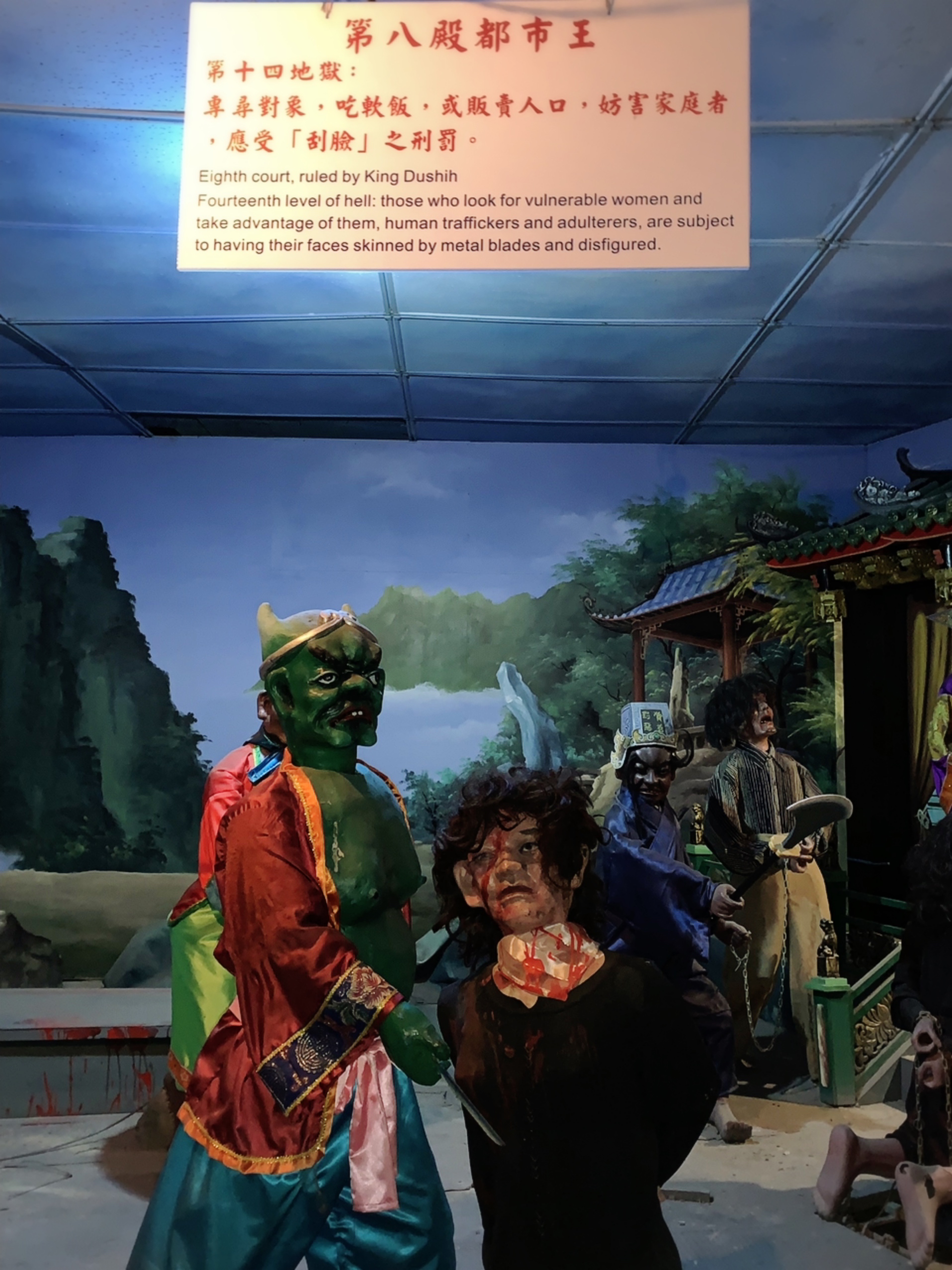 |
| Awesome. |
At the end of Hell, you reach a final level which is described as more of a purgatory. If you have not sinned enough to go to Hell, or have atoned for your sins, you may be sent by the gods to Heaven instead. At that point, you head upstairs and have the option of exiting, or checking out Animatronic Taoist Heaven.
While less interesting than Hell (because duh), Heaven is worth a visit because the stairs you climb - no heaven for the disabled I guess - take you right up into that kick-ass dragon you saw coming in. Heaven snakes all through its neck and spits you out in his mouth. (Which isn't a great way to word that, but you know what I mean.)
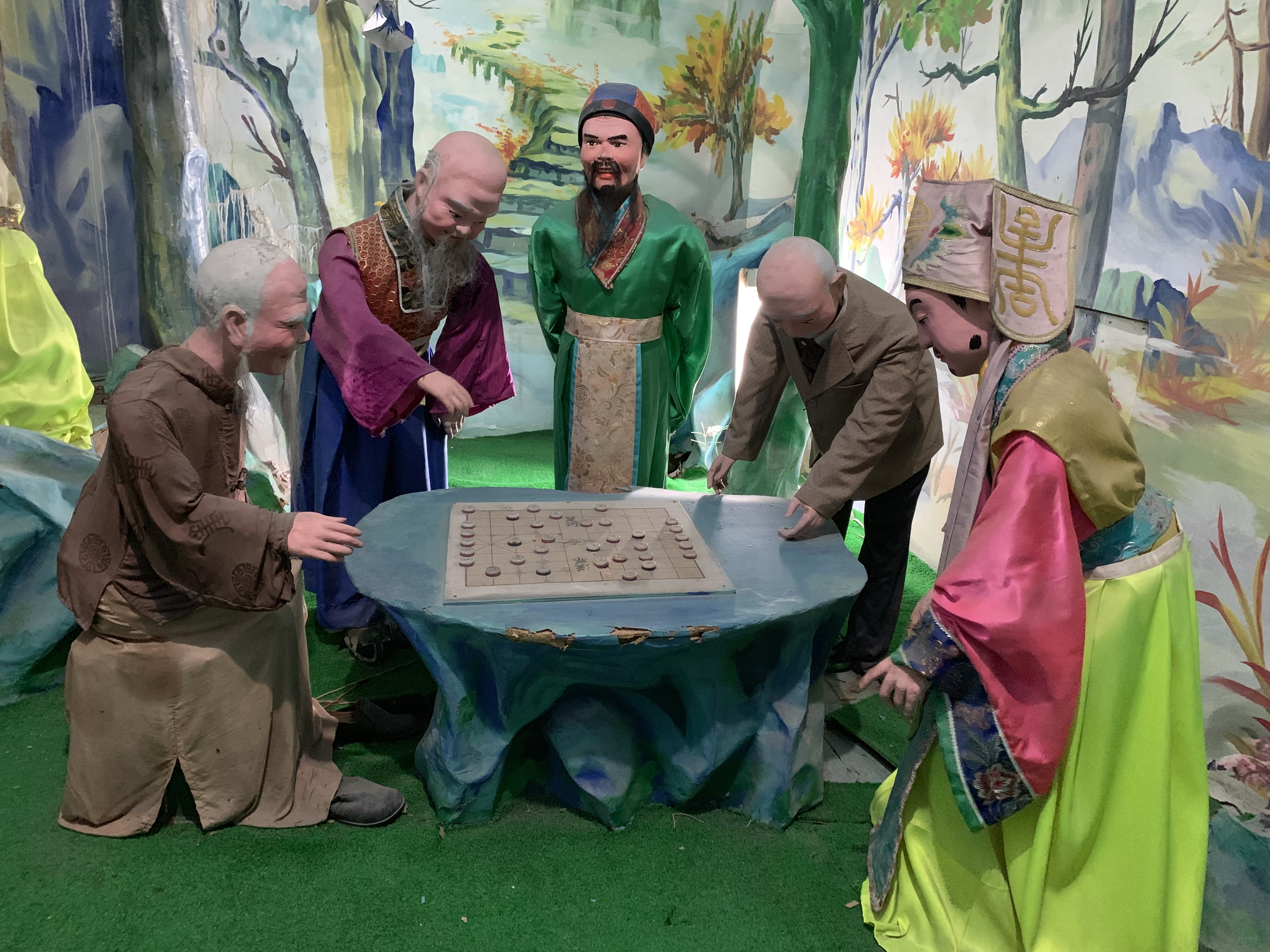
Here's the thing, though. The first animatronic sets you see in Heaven show either men drinking and talking at a fine carved table while the womenfolk sit at a lower, rougher, less fancy table...
...or they are playing various Chinese games and drinking while the women serve them.
Which, dude. Ew. So, in Hell your typical scrub gets his face skinned off, but in Heaven men are waited on by submissive women who always accept a smaller lot? Yuck. I'll take Hell, thanks.
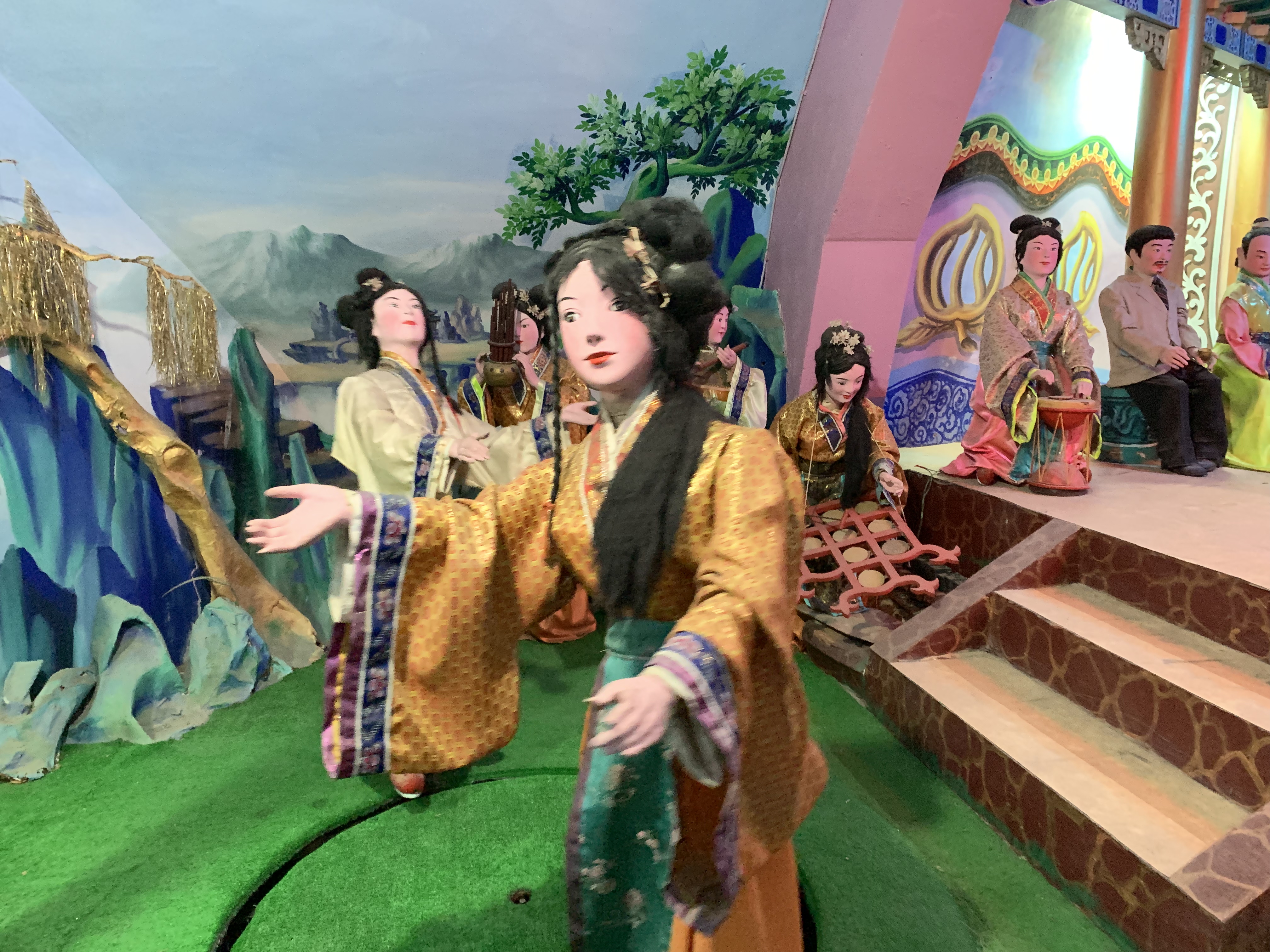
Another family ascended to Heaven with us, the young boy visibly shaken by Hell. I pointed out how sexist Heaven was to them and the parents agreed. Traditional Taoist Heaven seems great for the guys but perhaps not so great for the ladies, and the part where they all sit around playing instruments and laughing is fine, but not nearly as interesting as Hell.
But at the top, you get a fine view through the dragon's jaws to the rest of the temple complex, and there's a picnic area where you can sit before descending.
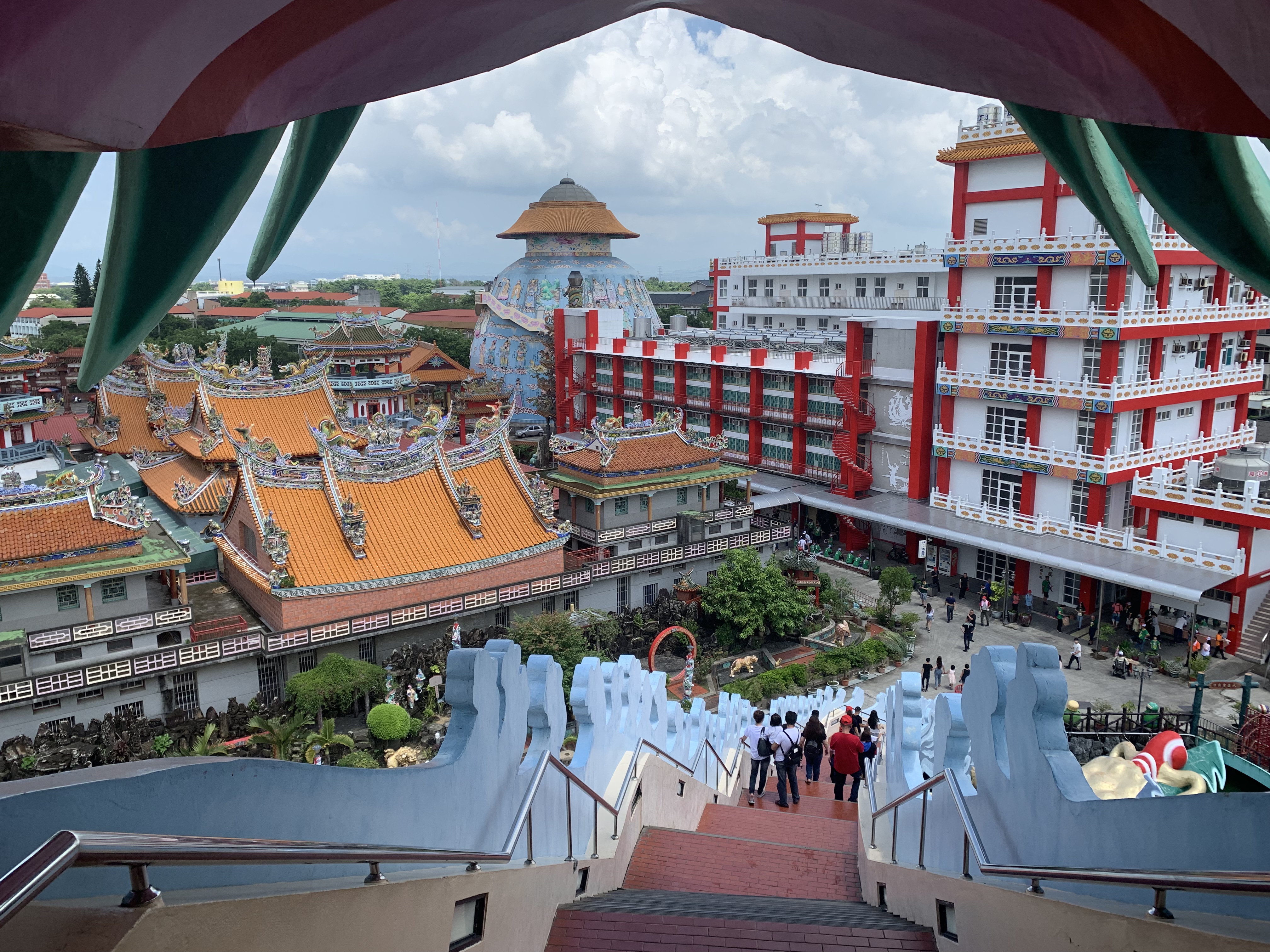
After returning to Earth, we noticed that the temple festival that had just been getting started when we arrived was in full swing. At one point, the Eight Generals (八家將), a group of female dancers in skimpy costume cheongsam dancing a choreographed number with a 'matchmaker' auntie, a troupe of teenage cheerleader-gymnast-dance performers, some dancing princes (三太子), and several spirit mediums including a number of women (rare in northern Taiwan) were all going at once in what felt almost like a three-ring circus of things to see. I put much of this on Facebook as a livestream, so didn't get many photos, but here are a few:
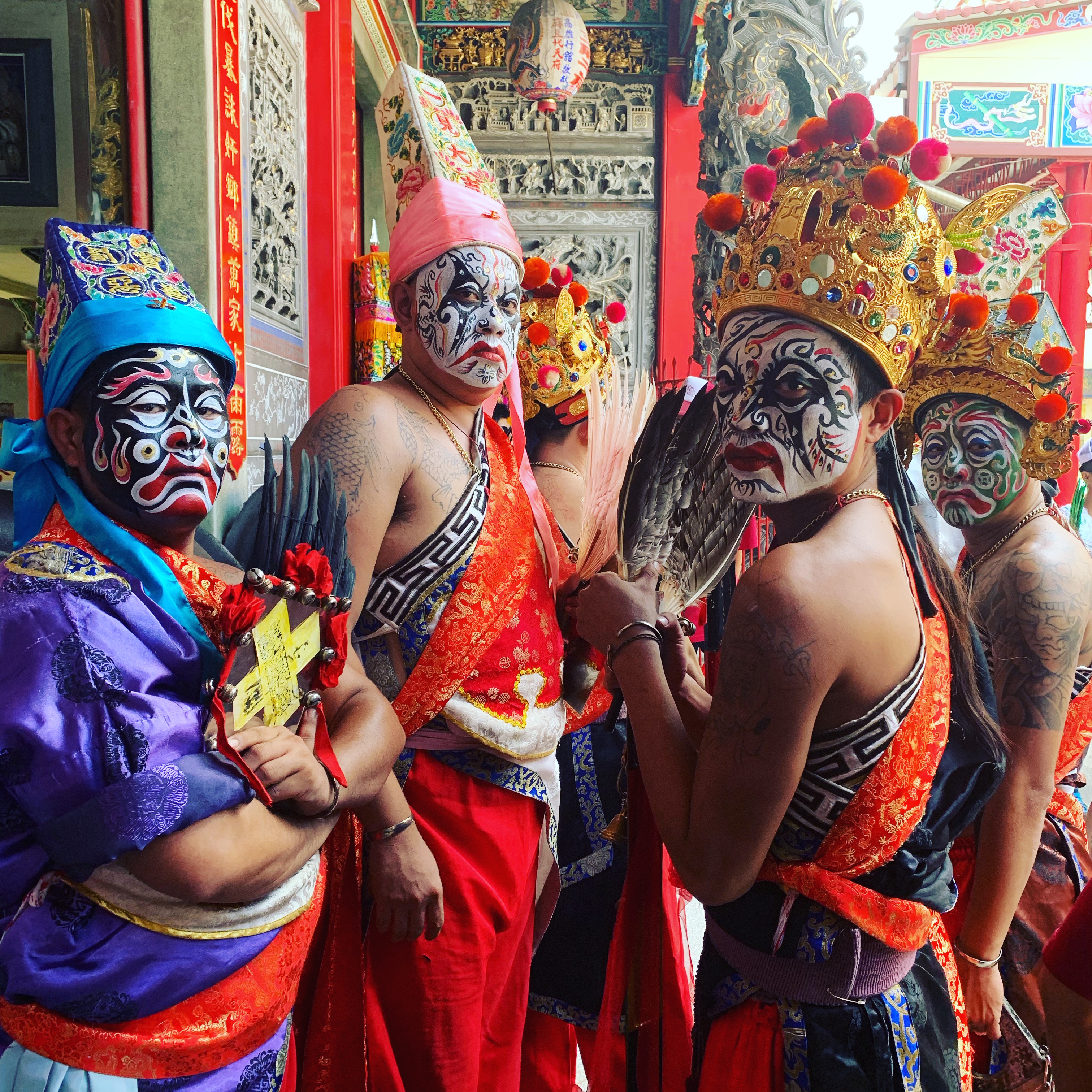

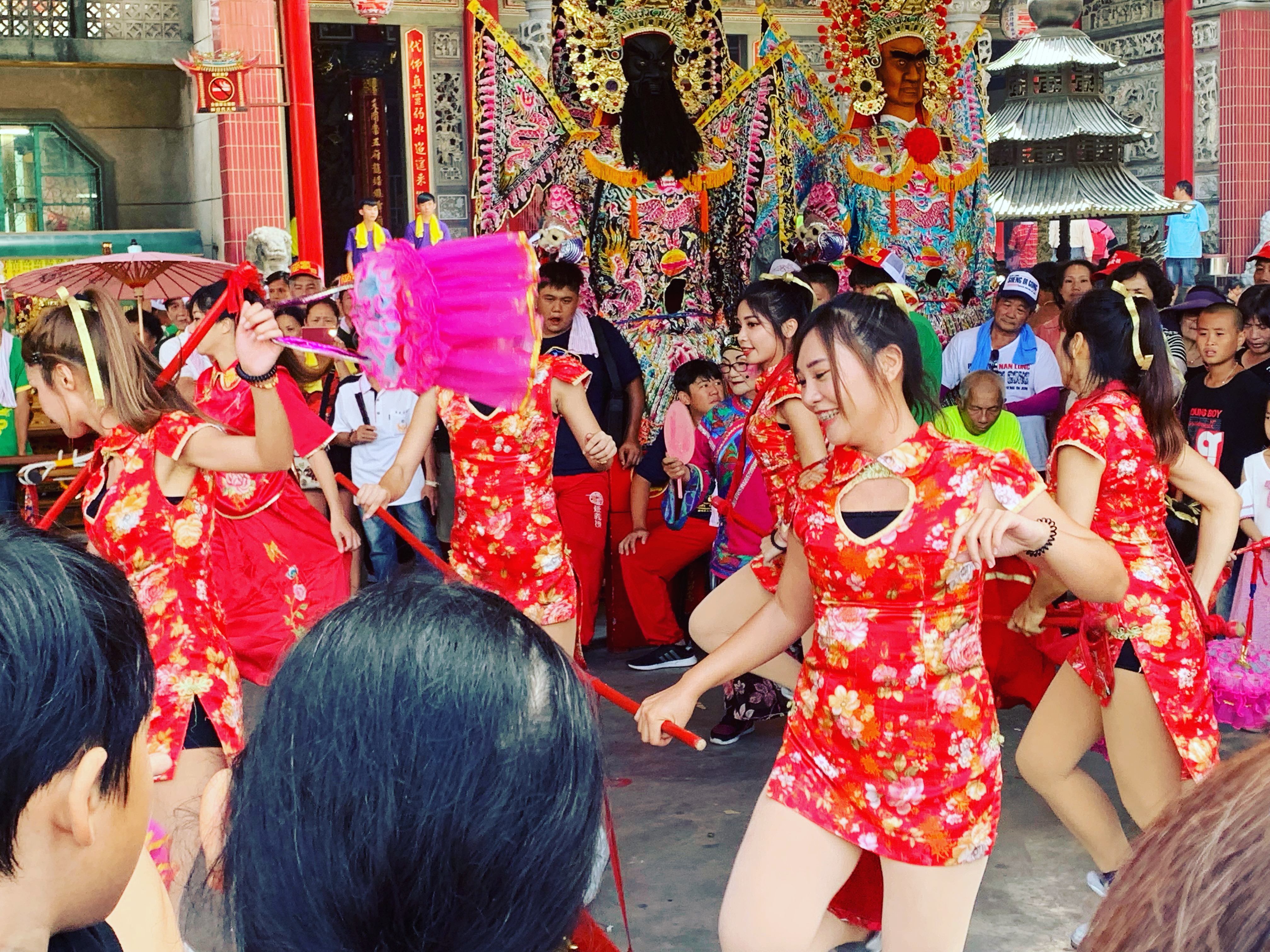
We left the temple and hit up the sugar refinery, which has a lovely park but was too hot to really enjoy (the small art exhibit on a local artist was nice, and also air conditioned).
It's worth noting that Madou is also famous for pomelos, and if you want to try the local product without buying and eating an actual pomelo, there's a small, unassuming cafe at the sugar refinery where you can get a Madou pomelo slushie (麻豆柚子冰沙), which is perfect for the summer heat.

One more stop - the old theater - and it was time to say goodbye to Madou. The theater is worth a quick look but despite advice from a friend, I was not able to get inside. There are alleys around it and I took a walk down the one on the left, which lets out at some privately-owned traditional farmhouse, right in town. It's lovely, with a bright and flowering garden...and an unfriendly dog (the human who was there didn't seem to mind my presence but I didn't really want to hang out on his property like a weirdo, even though as a foreigner one can kind of get away with that. I don't like using my privilege that way.) Also, a big old wall between his house and the abandoned theater, with no clear way in.
Anyway, the weather was hot and bright, at least in the 90s and possibly topping 100. So here we are, a little sweaty and tired, and about to head out for famous gelato in Yujing, about a 20-minute drive away:
 |
| If you put our shirts together, it comes out as something like "I support Taiwan independence, motherfucker!" in Taiwanese. |

